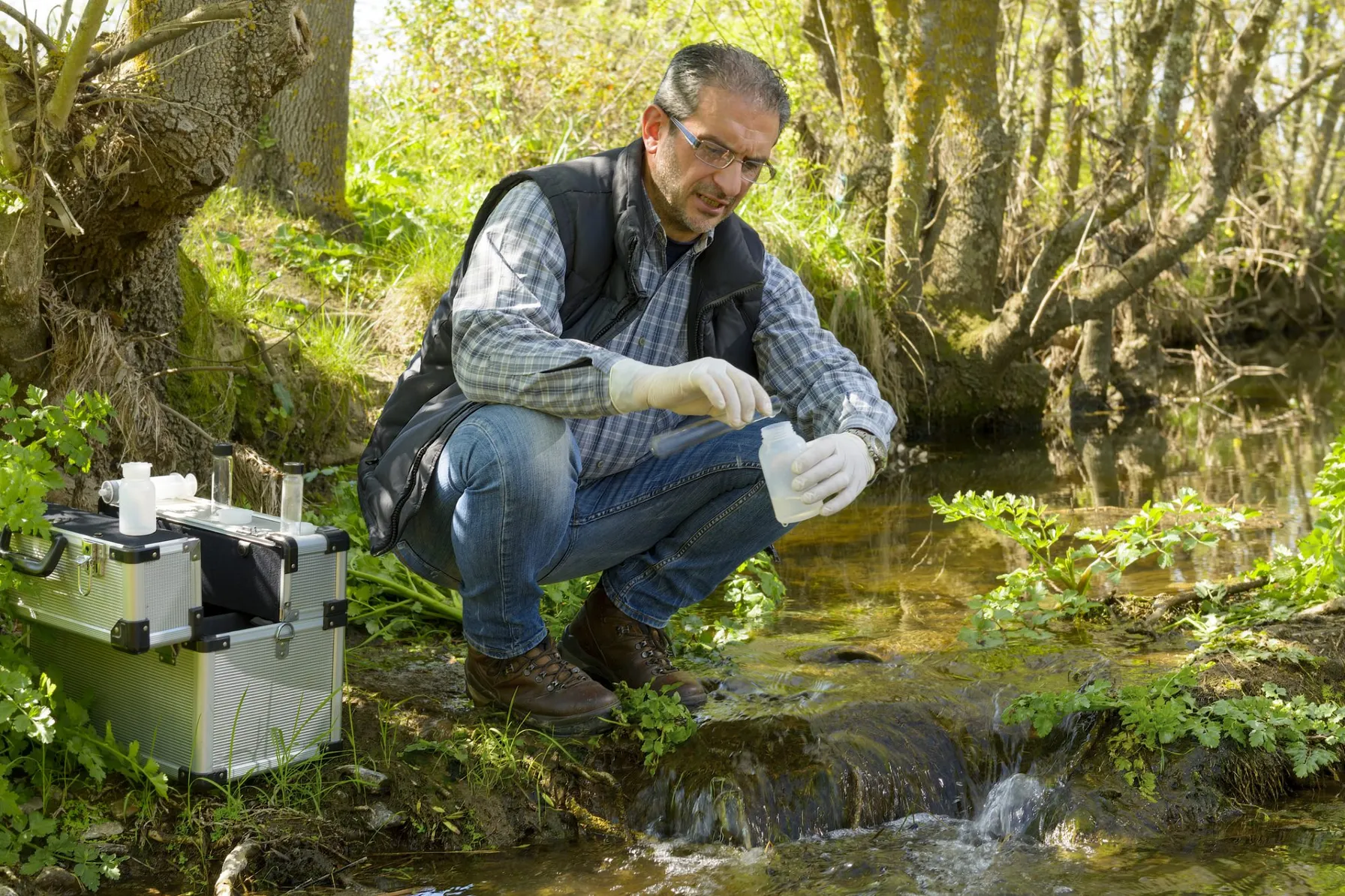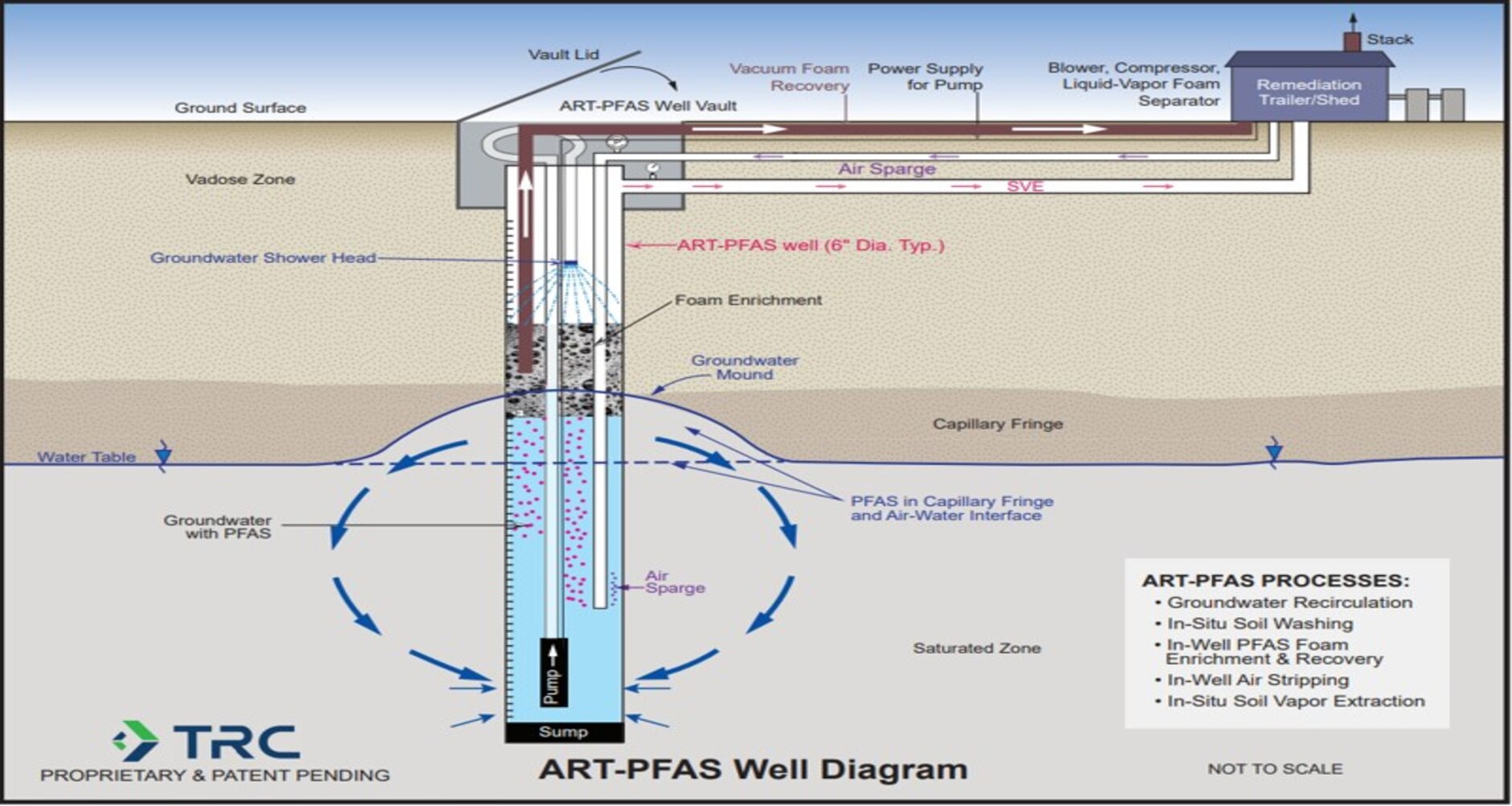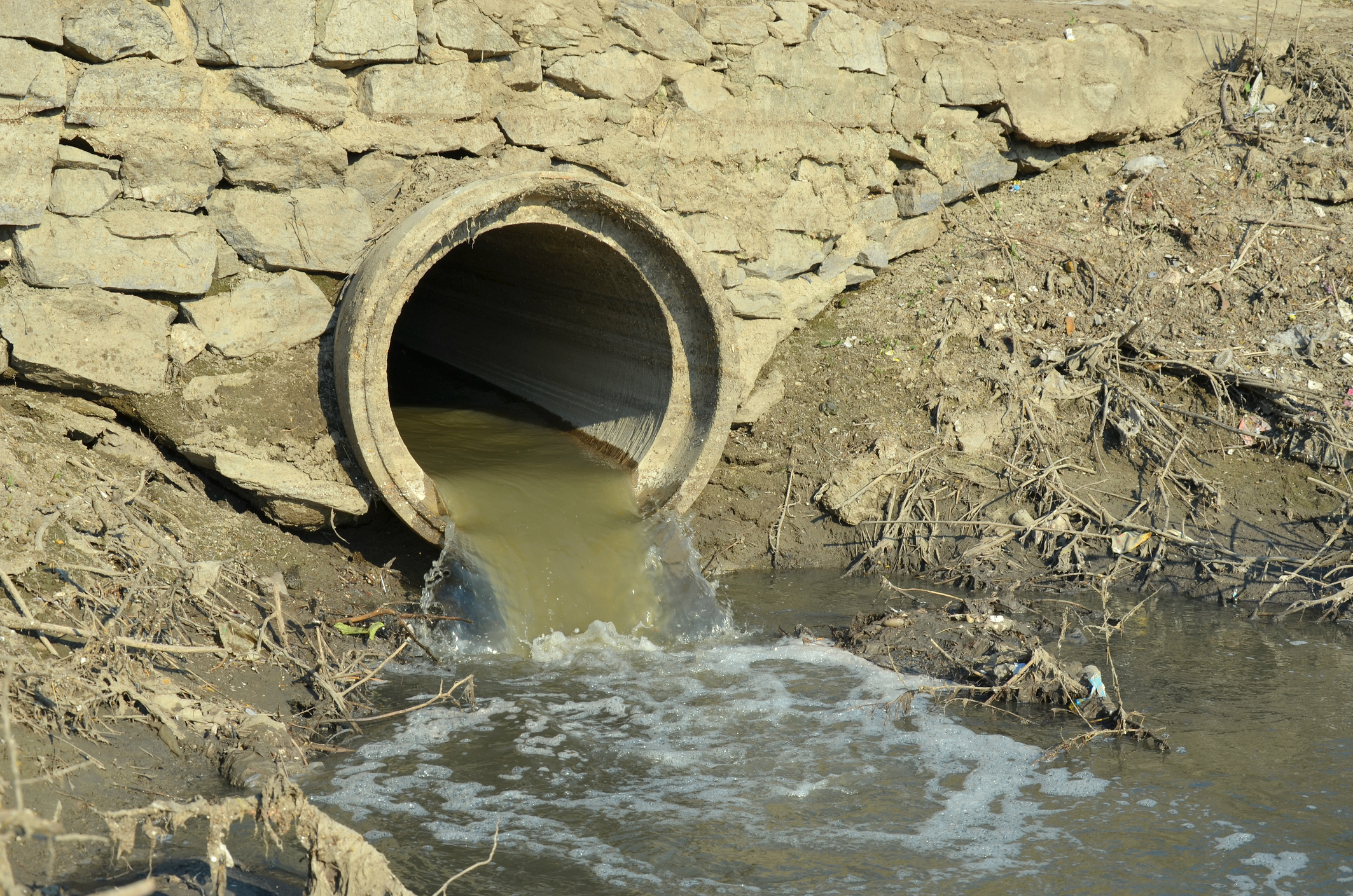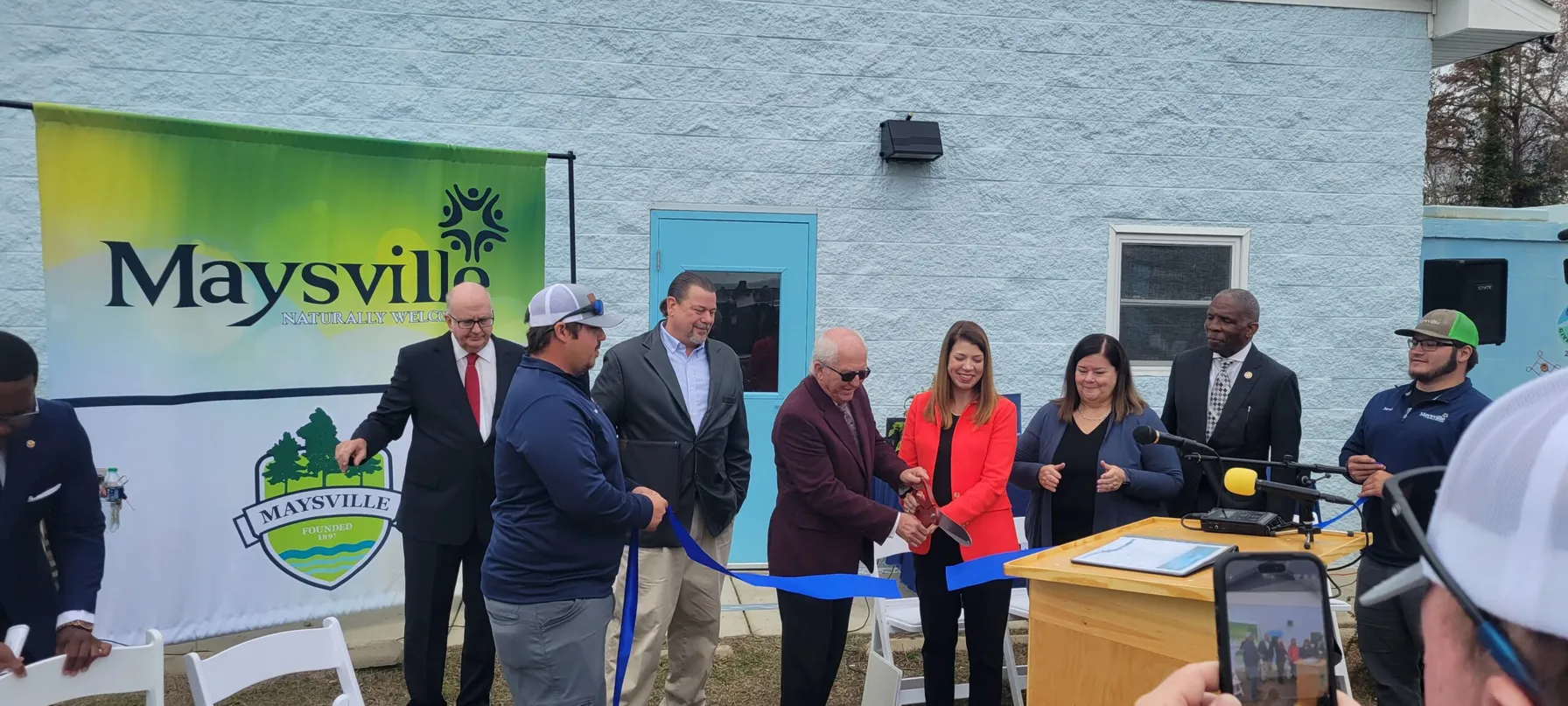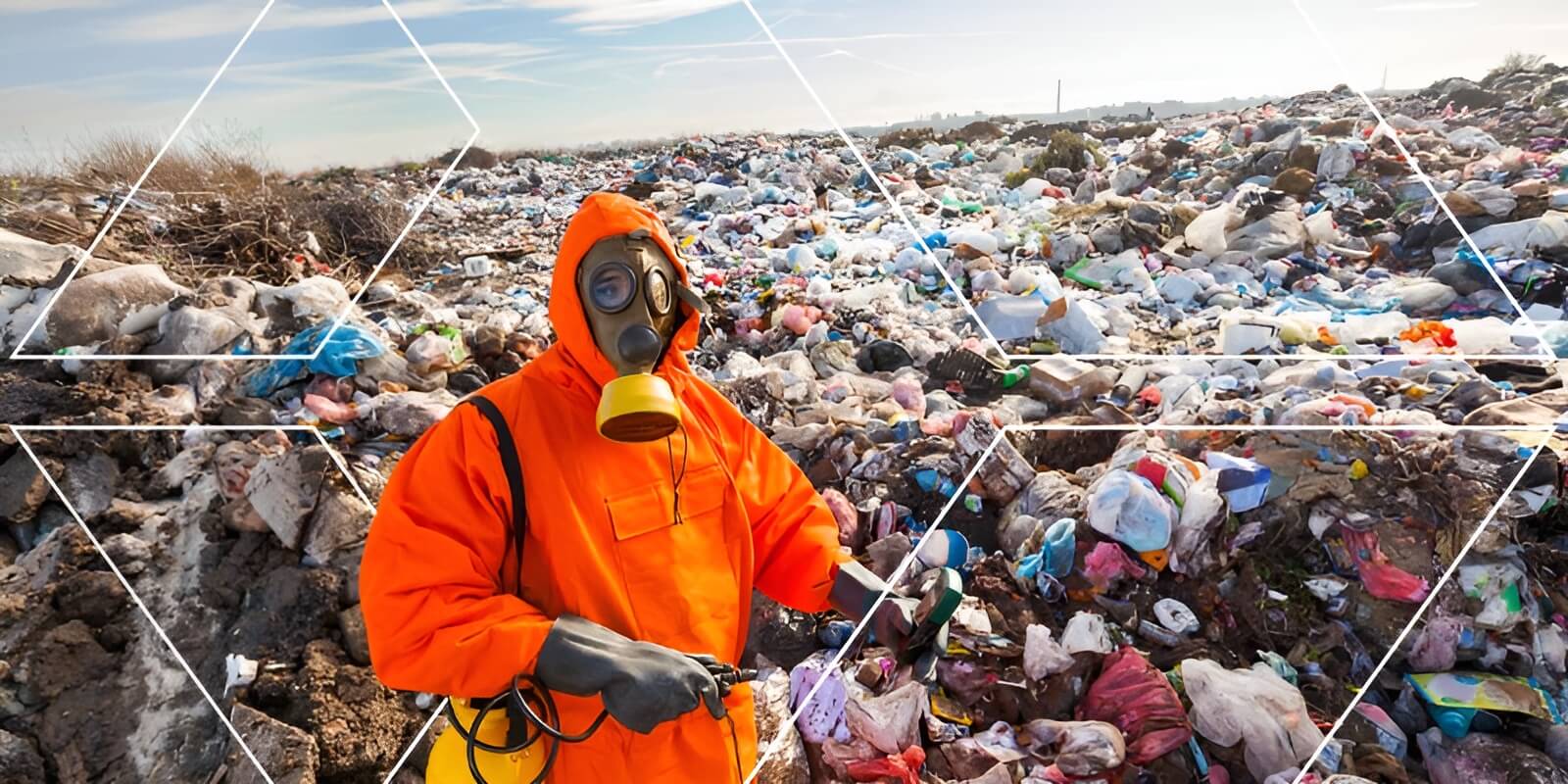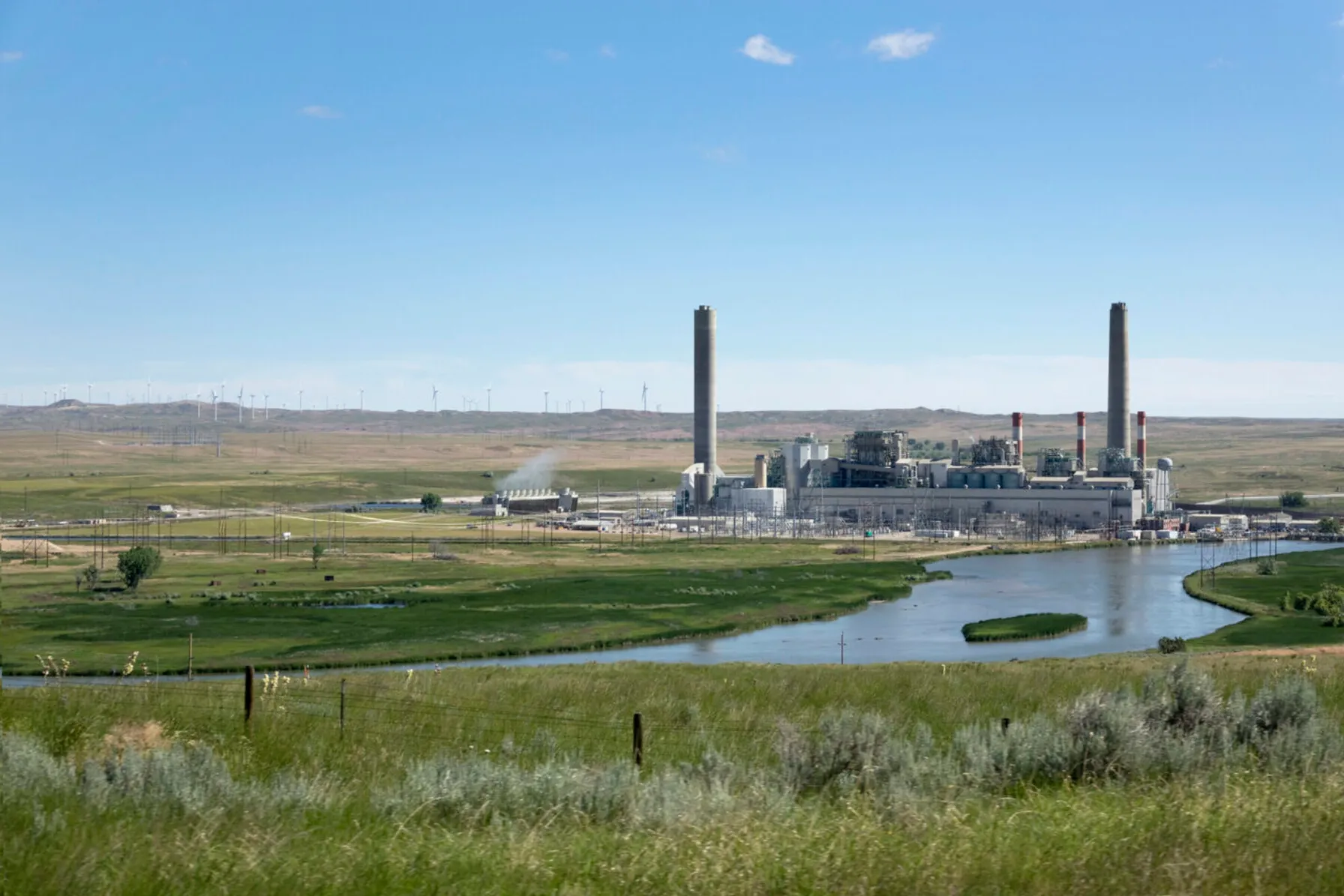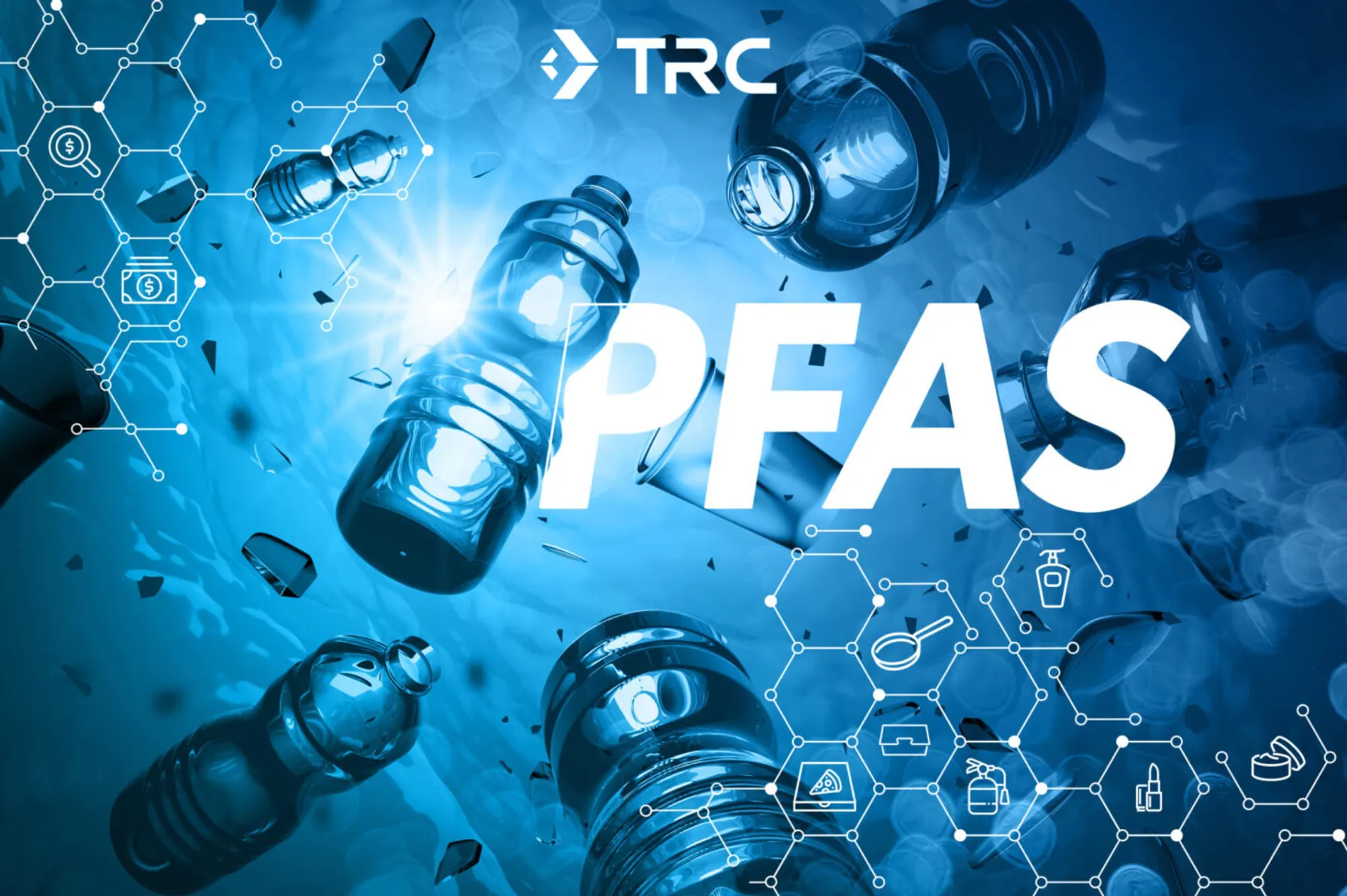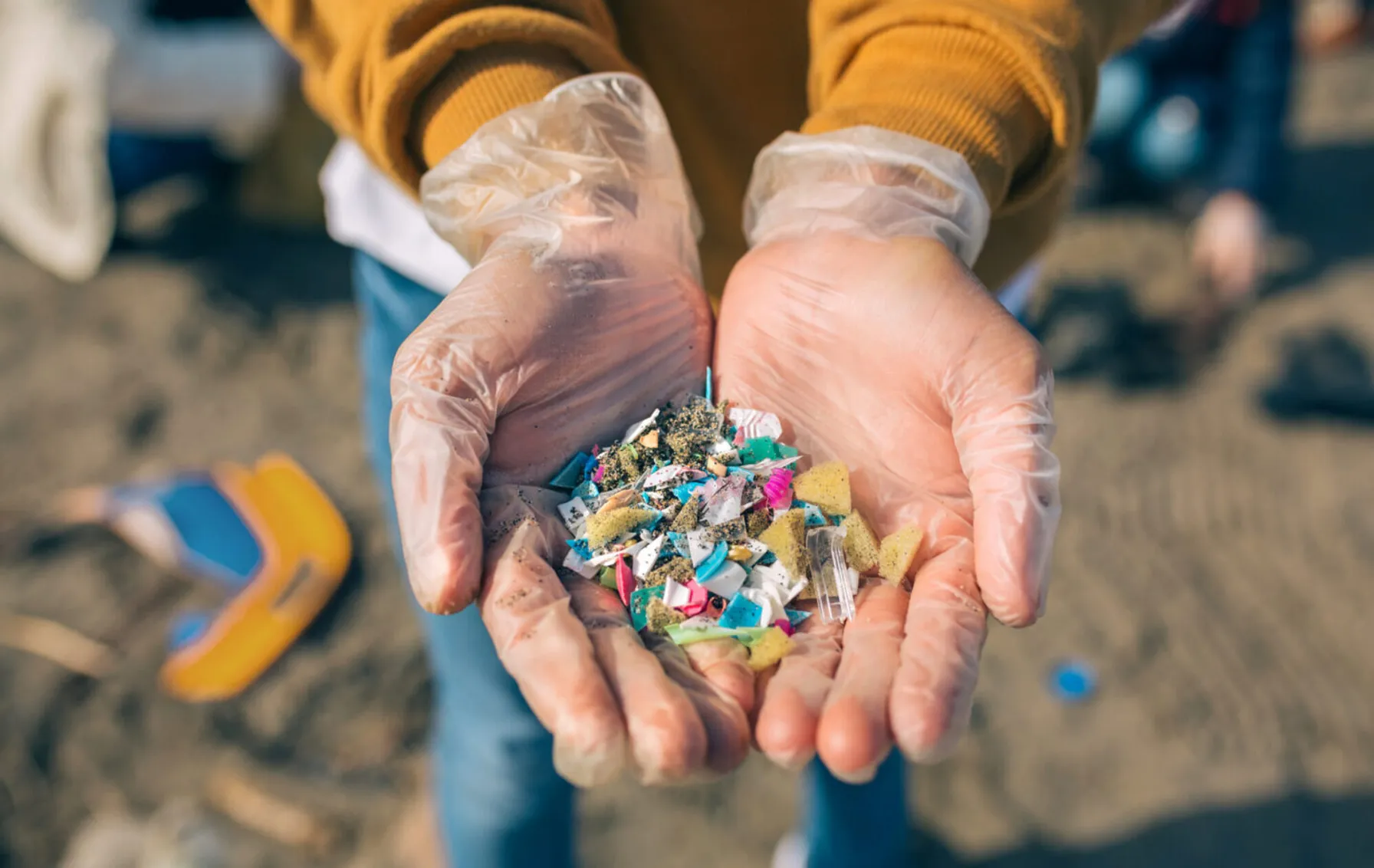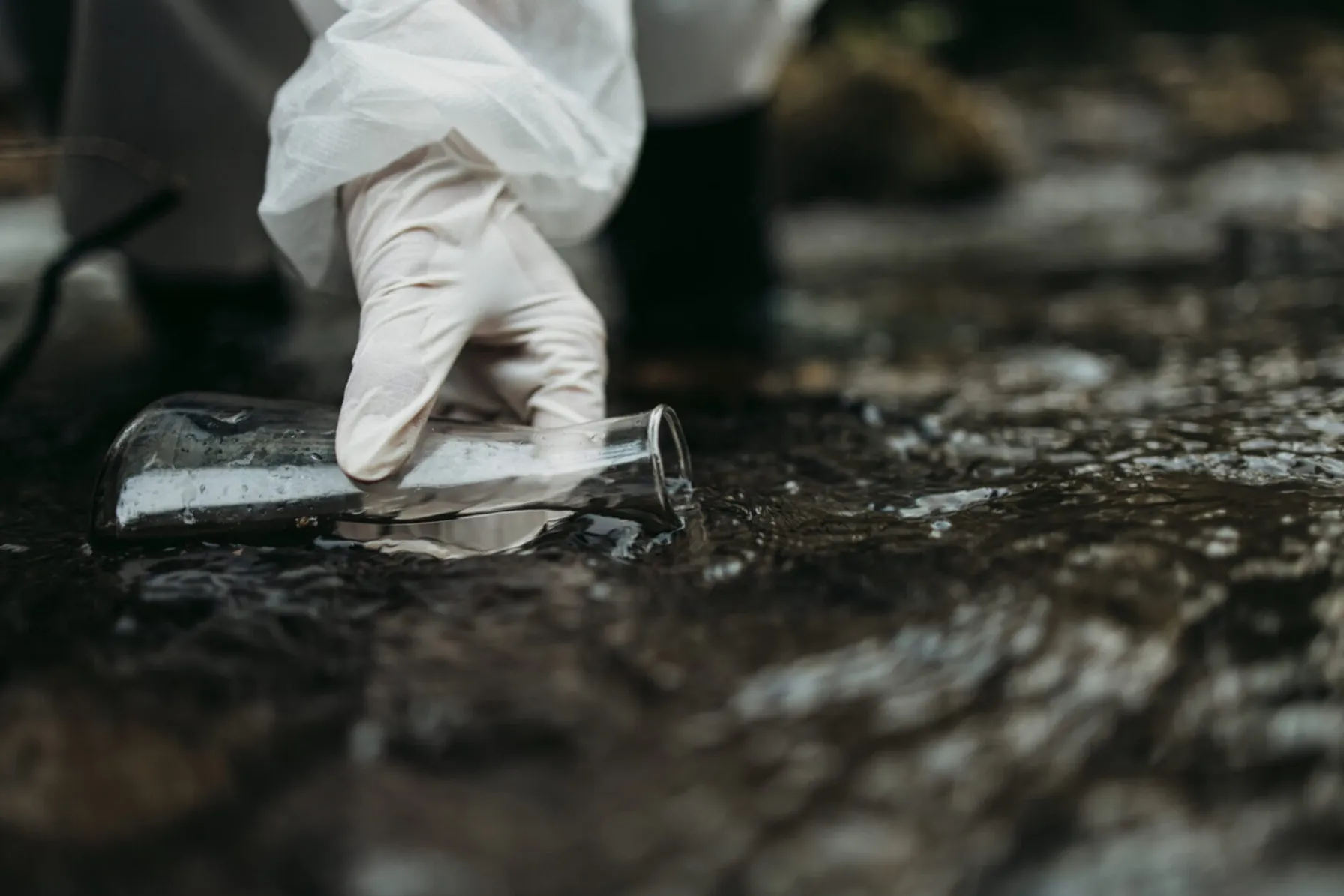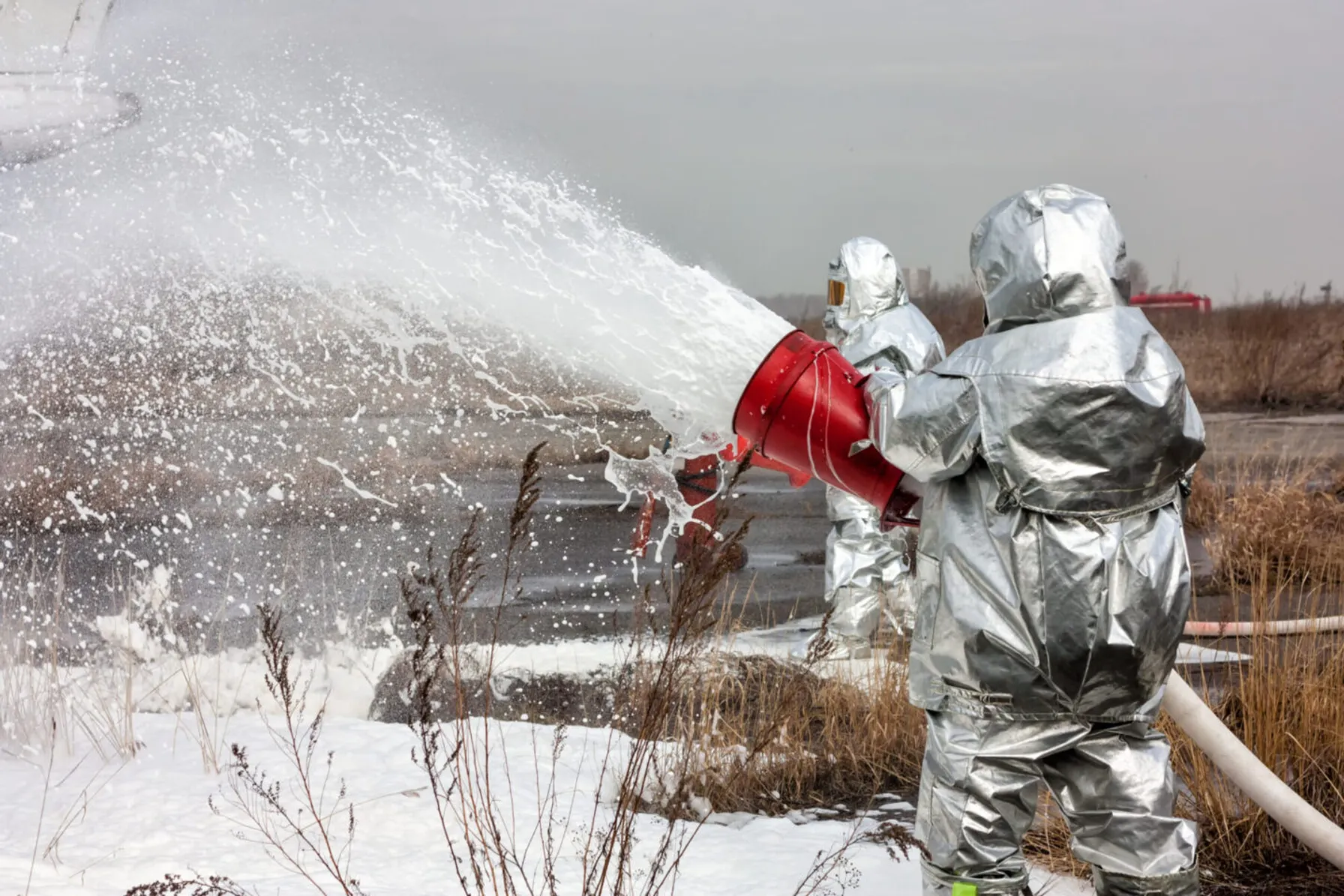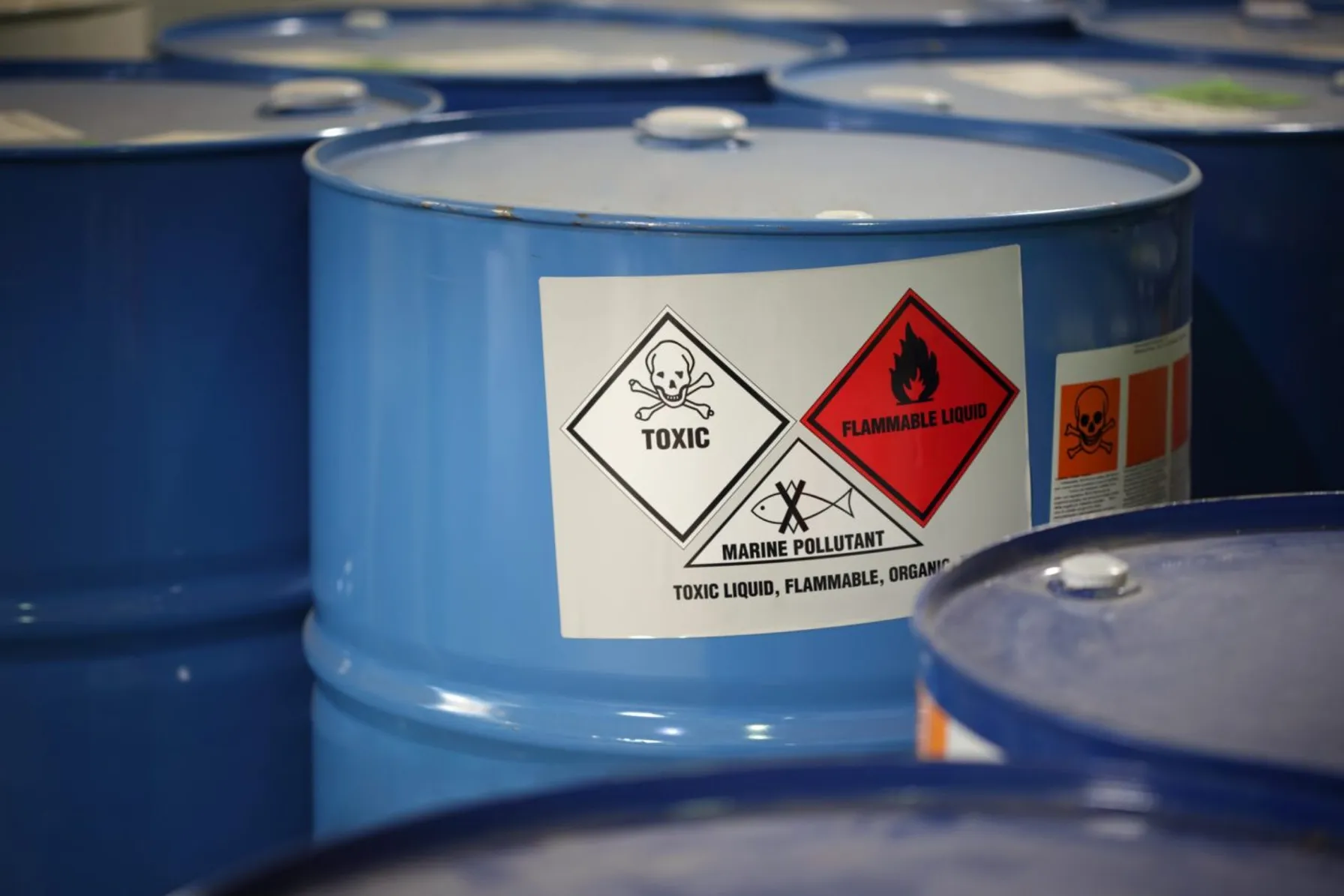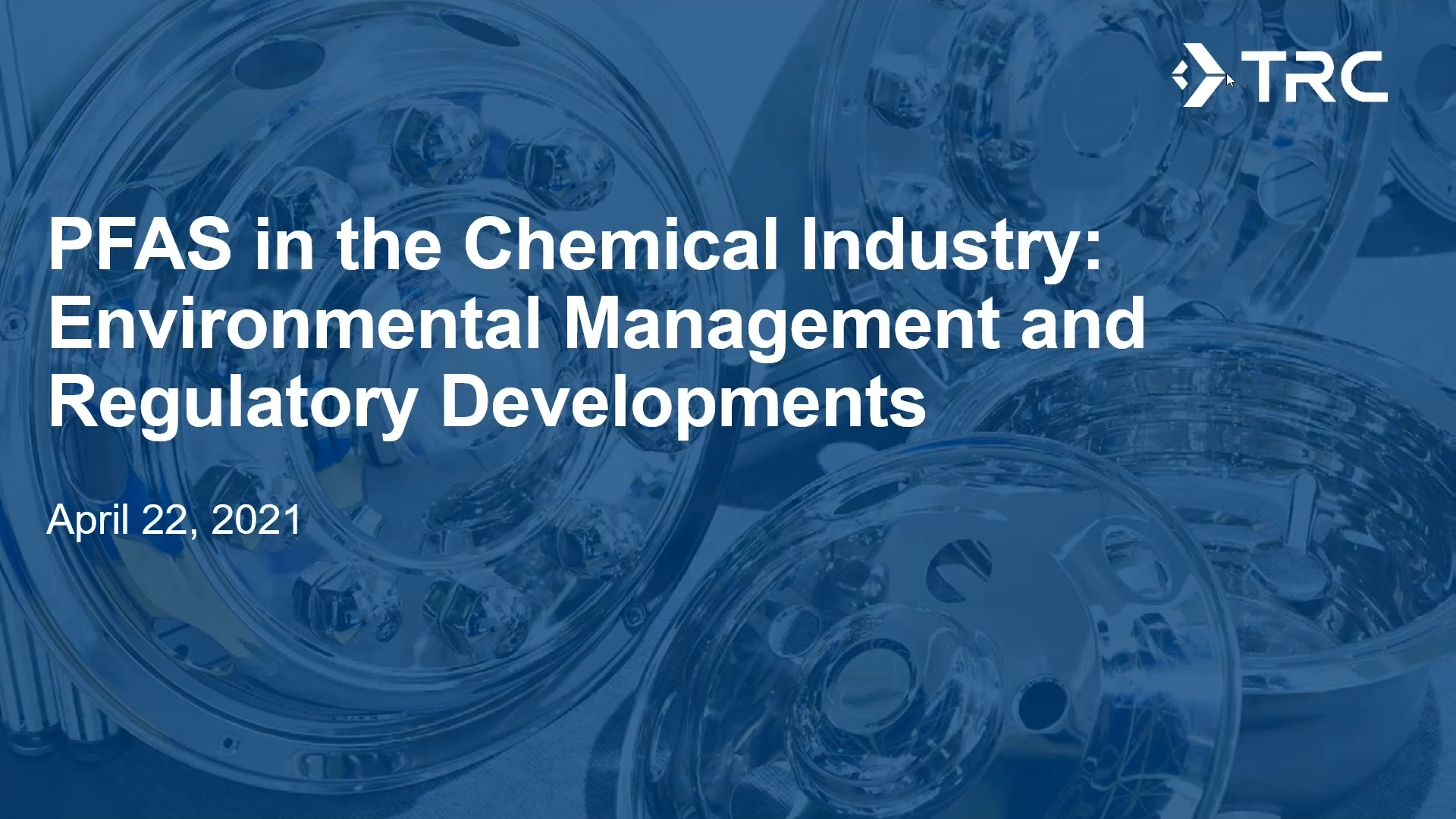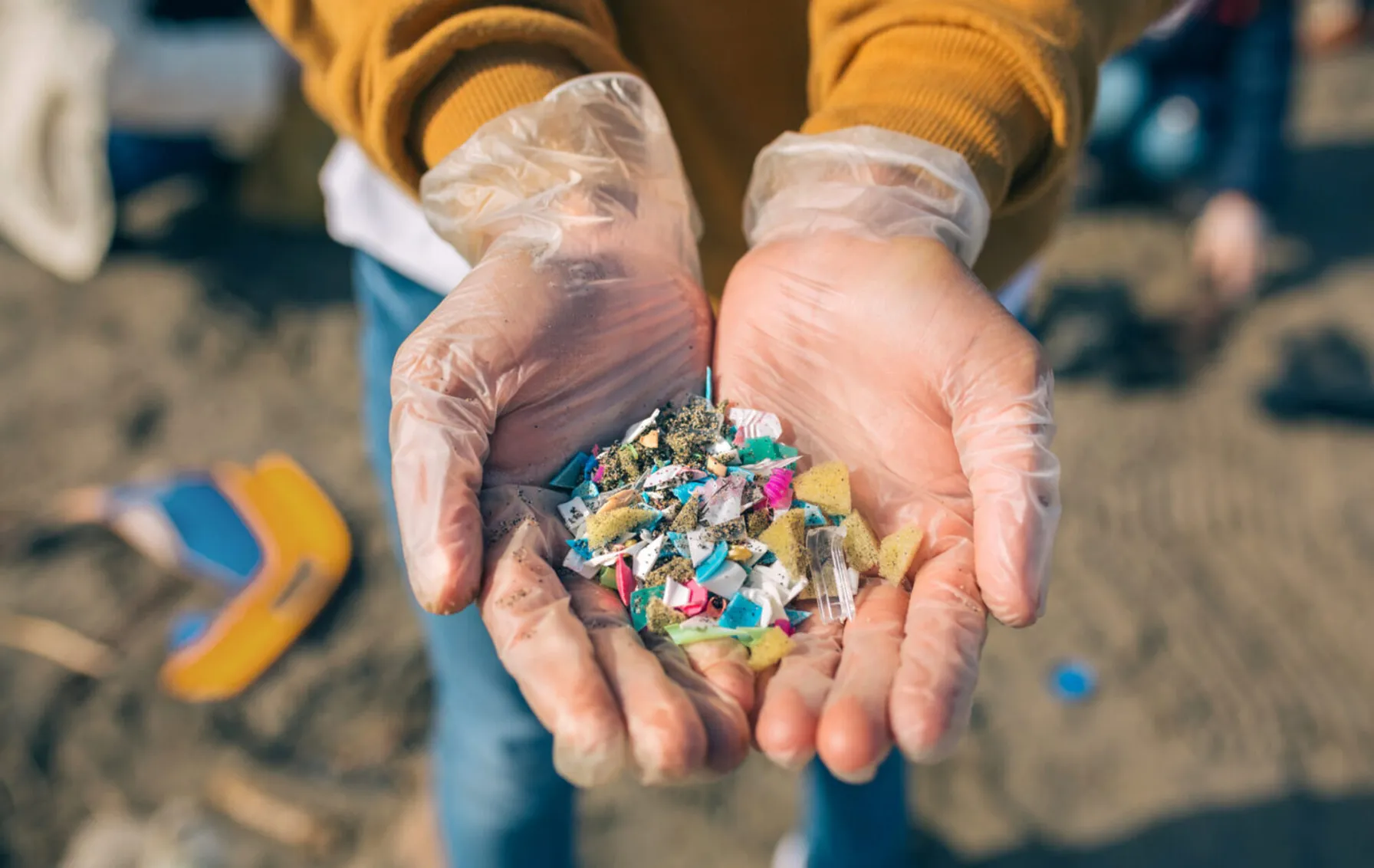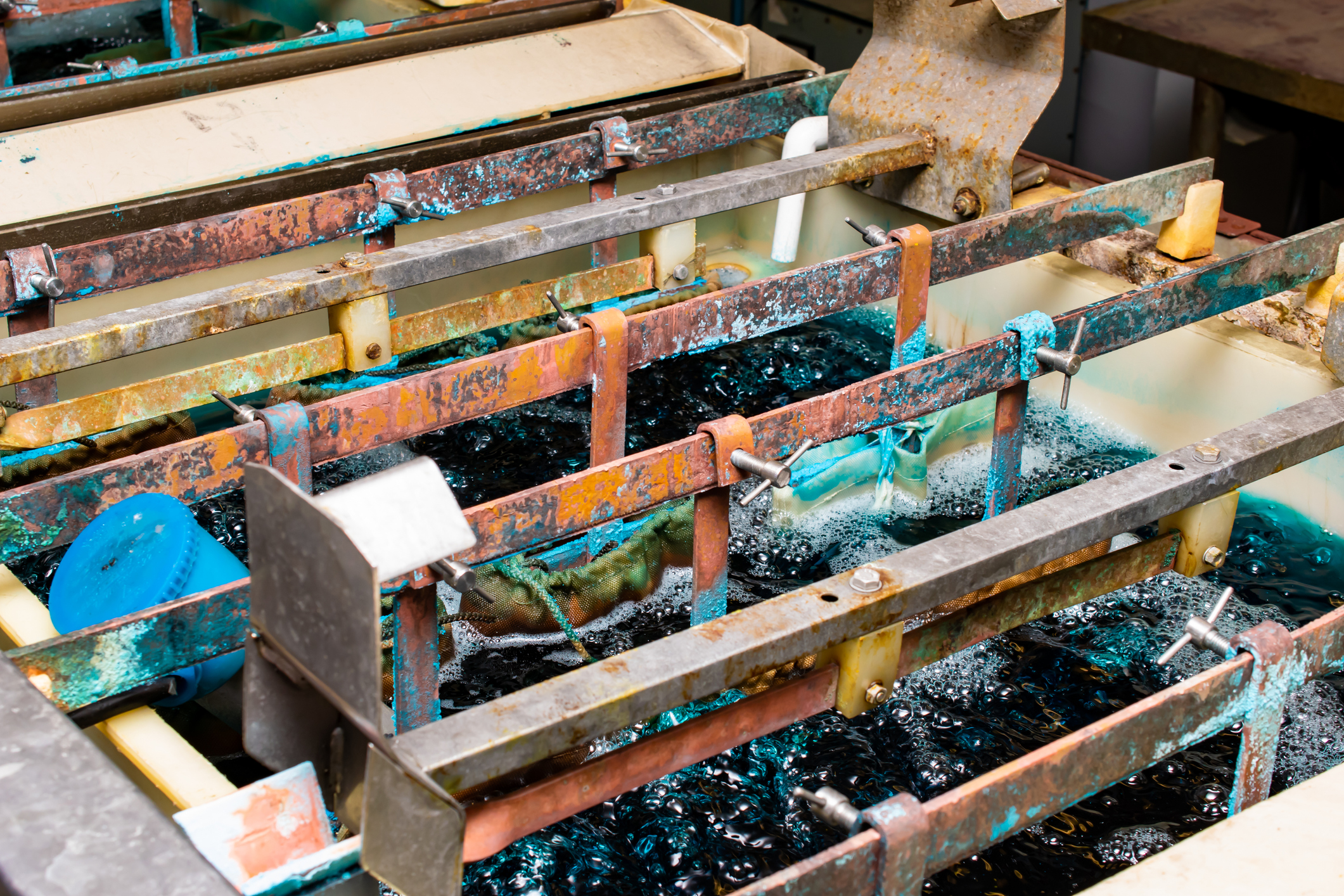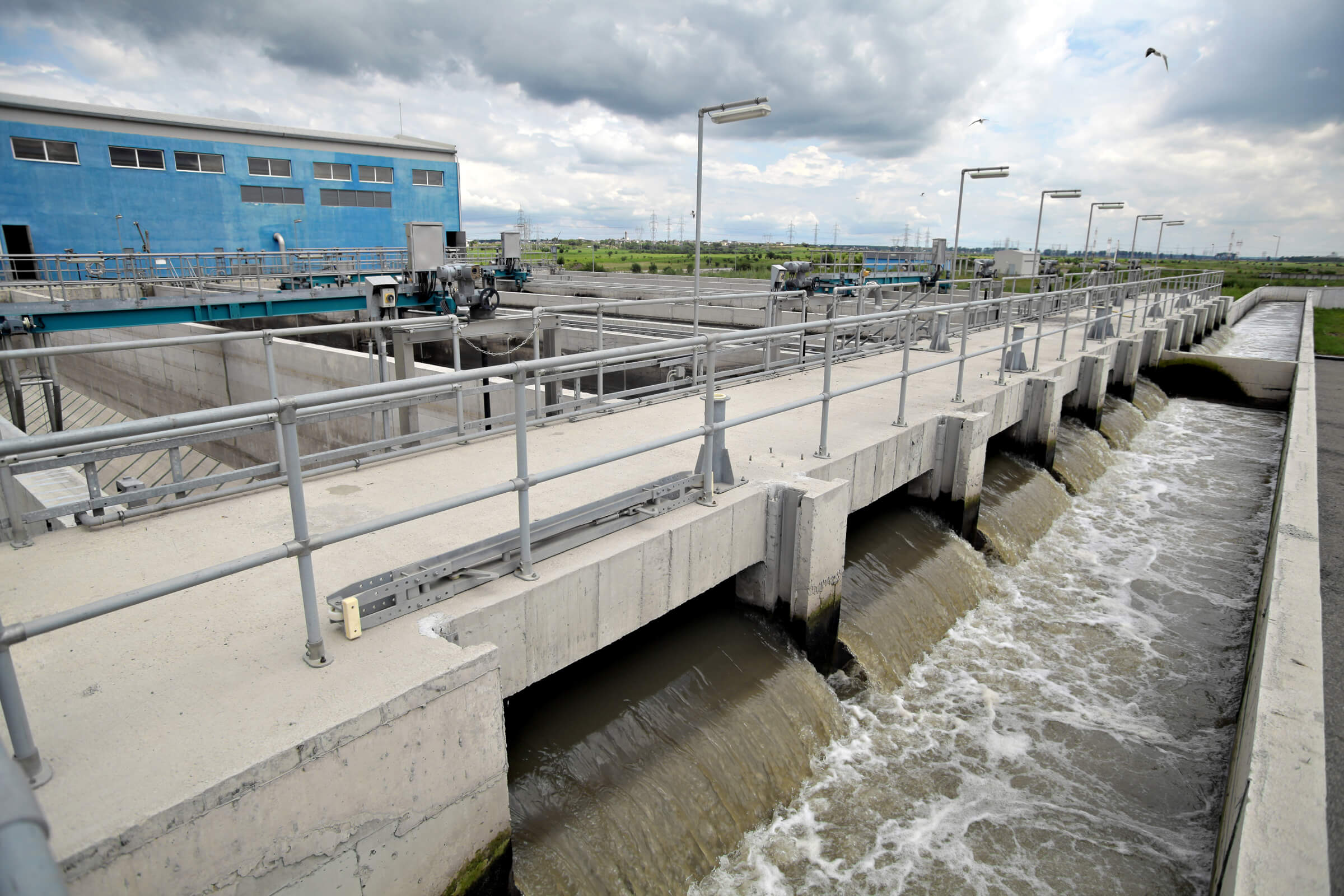Author: Elizabeth Denly, Jim Occhialini, Phil Bassignani, Michael Eberle, Nidal Rabah | March 29, 2022
TRC’s per‐ and polyfluoroalkyl substances (PFAS) experts published an article that investigates the potential for cross-contamination from a number of commonly used products during sampling.
Abstract:
Can PFAS be transferred from the common field and other commercial products during sampling? Special handling and care are always advised when collecting samples for PFAS analysis to avoid sample contamination. The potential presence of PFAS in common consumer products and in equipment typically used to collect environmental samples, coupled with the need for very low reporting limits heightens this concern.
In this paper, the authors investigate what the potential for crosscontamination is from a number of commonly used products, with the emphasis on evaluating what the possible worst‐case scenario for cross‐contamination could be. Polytetrafluoroethylene (PTFE), low‐density polyethylene (LDPE), and high‐density polyethylene (HDPE) tubing, pump bladders, and other materials are evaluated along with associated products such as aluminum foil and plastic storage bags. In the experimental design of this study, the products themselves are not analyzed directly for PFAS. Rather, a series of experiments are performed utilizing a leaching procedure to evaluate the potential for cross-contamination and false‐positive environmental sampling results. This study was performed in a series of experimental batches over the course of a 1‐year period. Analytical results are presented along with experimental observations and recommendations.
Related Services
- Atlantic Coast Port Readiness – Offshore Wind Study
- Basement Impact Assessment
- Block Island Wind Farm Compliance Monitoring
- Grassland Breeding Bird Surveys for Renewable Energy Development
- Madison Water Utility – PFAS Removal Bench-Scale Testing and Feasibility Study
- PFAS and Emerging Contaminants
- PFAS Treatment Evaluation for the Maysville Well
Related Materials
 Per‐ and Polyfluoroalkyl Substances in Environmental Sampling Product: Fact or Fiction?
Per‐ and Polyfluoroalkyl Substances in Environmental Sampling Product: Fact or Fiction?
Published September 11, 2019
Sharing Our Perspectives
Our practitioners share their insights and perspectives on the trends and challenges shaping the market.
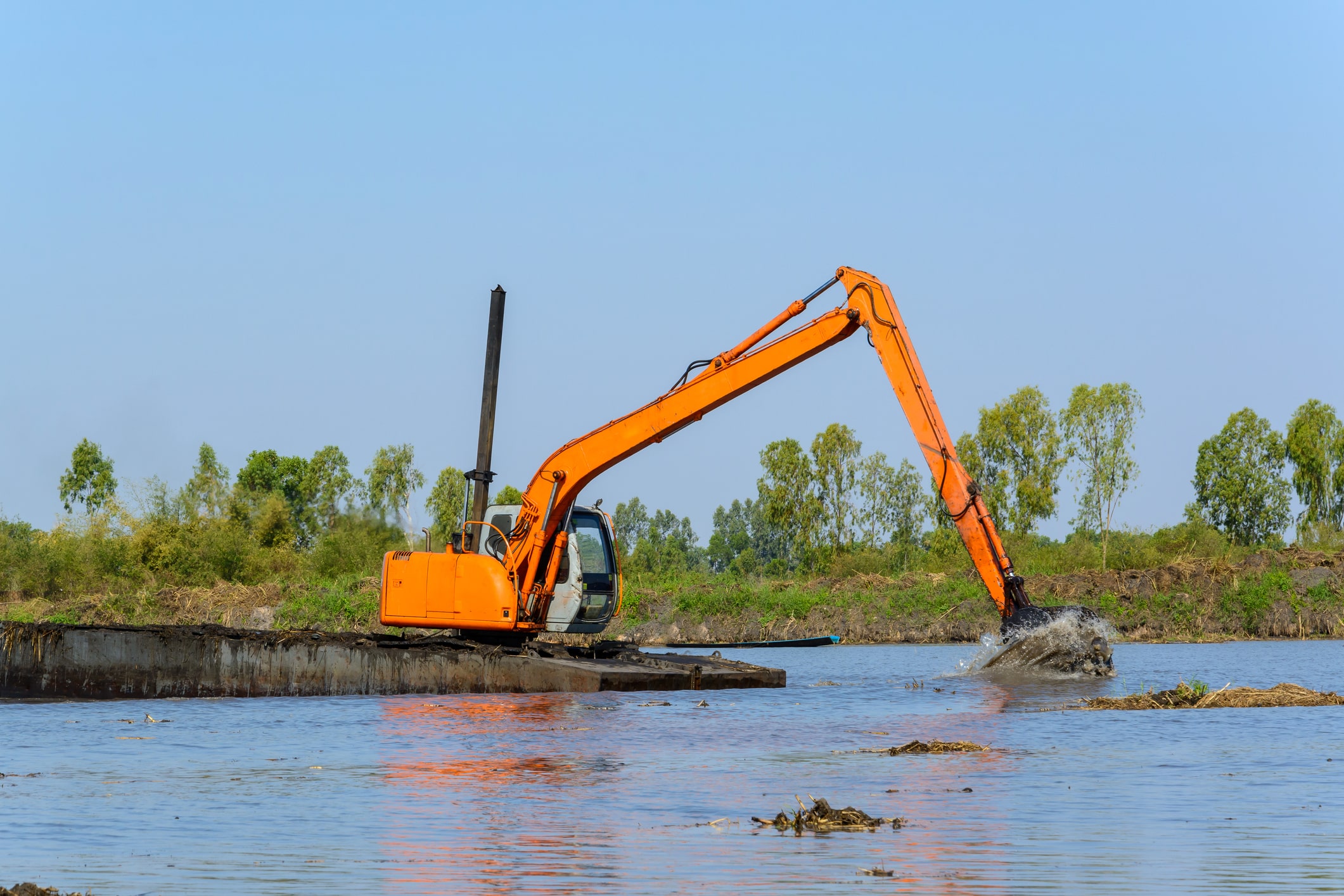
Treatment of PFAS to Allow for Beneficial Use of Impacted Dredged Sediments
July 18, 2024
Approximately 200 to 300 million cubic yards of sediment are dredged each year by the US Army Corps of Engineers (USACE) and other federal interests (USEPA, 2007).

Coming at You Fast – The Latest on RCRA and PFAS Regulations
March 1, 2024
The EPA published its Proposed Rule for Listing of Specific PFAS as Hazardous Constituents under the Resource Conservation and Recovery Act (RCRA).

New EPA Rule Impacts PFAS TRI Reporting and Supplier Notifications
November 20, 2023
What Affected Facilities Need to Know About Applicability, Reporting Changes and Deadlines

EPA Proposes Changes to Air Emissions Reporting Requirements (AERR)
August 30, 2023
The EPA is proposing updates to their Air Emissions Reporting Requirements (AERR) through amendments to 40 CFR Parts 2 and 51.
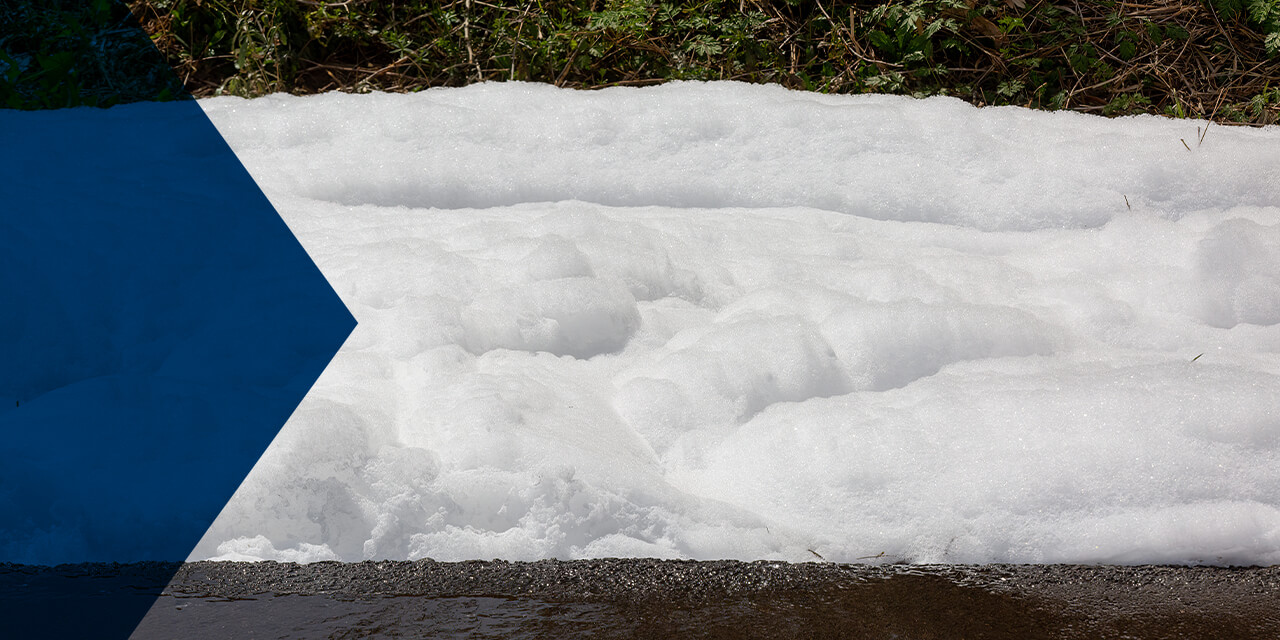
How Does PFAS Contamination Impact the Environment?
August 11, 2023
PFAS are widely used in the production of numerous products. Some PFAS chemicals are the by-product of manufacturing processes. As a result, PFAS contamination is widespread, with PFAS being found nearly everywhere in the world.

Helping Airports Identify and Mitigate PFAS Risks
May 30, 2023
This white paper focuses on some unique strategies and situations we have encountered at some airport sites.

EPA Finds Trichloroethylene Presents Unreasonable Risk in Final Risk Evaluation
April 6, 2023
On Jan 9, 2023, the United States Environmental Protection Agency (EPA) revised the Toxic Substance Control Act (TSCA) to reflect a new risk determination for trichloroethylene (TCE).

Proposed Use of a Hazard Index for PFAS National Primary Drinking Water Regulation (NPDWR)
April 4, 2023
The Proposed MCL and MCLG for the four PFAS, PFNA, PFHxS, GenX, and PFBS, considers their toxicity as additive. The EPA has proposed a HI of 1.0 as the MCL and MCLG for the four PFAS combined.

Proposed MCLGs and MCLs for PFAS
March 15, 2023
Final Regulatory Determination for Contaminants on the Fourth Drinking Water Contaminant Candidate List

QA and Chemistry Services
February 23, 2023
TRC offers many QA and Chemistry services including data usability assessments, limited and full data validation reports, quality assurance project plan preparation, selection of appropriate analytical methodologies and laboratory audits.
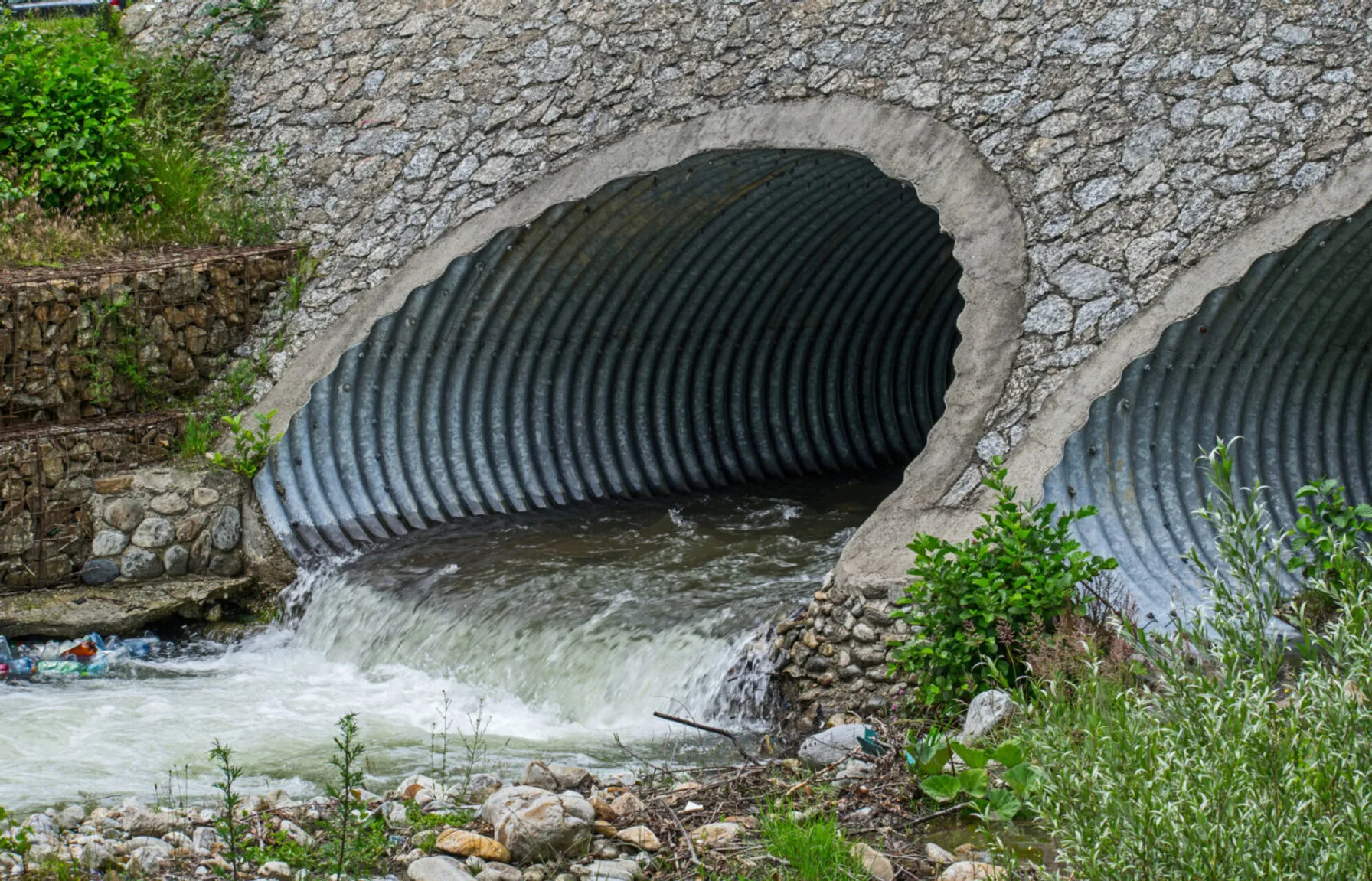
PFAS Fate and Transport
February 23, 2023
Understanding PFAS properties and behavior is key to effective detection and remediation.

PFAS Fate and Transport: Conceptual Site Models
February 23, 2023
The conceptual site model describes site-specific sources, release and transport mechanisms, exposure media, exposure points, exposure pathways and routes and potential human and/or ecological receptor populations.
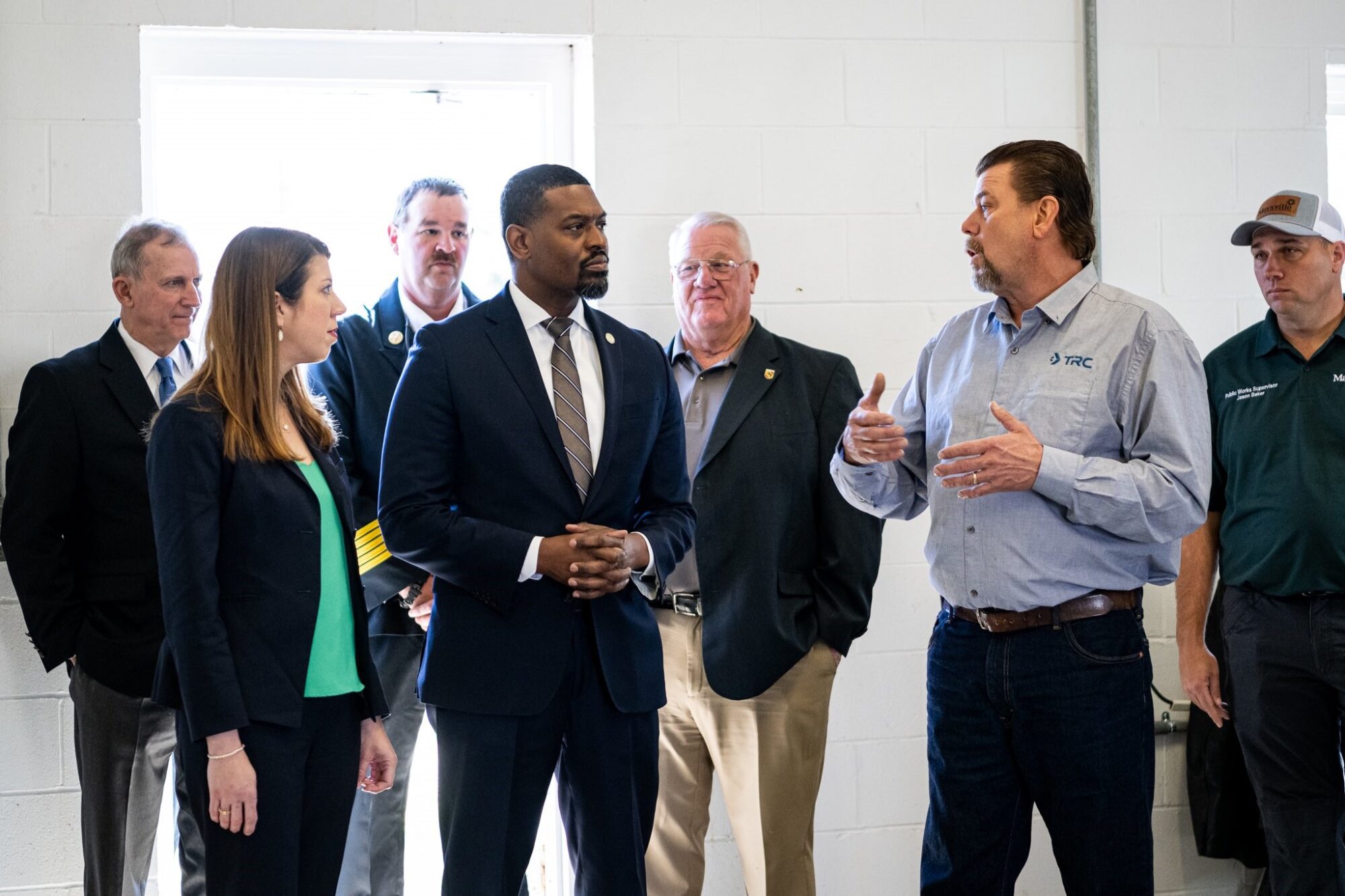
EPA Announces $2 Billion in Funding to Address Emerging Contaminants in Drinking Water
February 14, 2023
Environmental Protection Agency Administrator Michael Regan announced $2 Billion in infrastructure funding to help the nation’s rural water supplies.
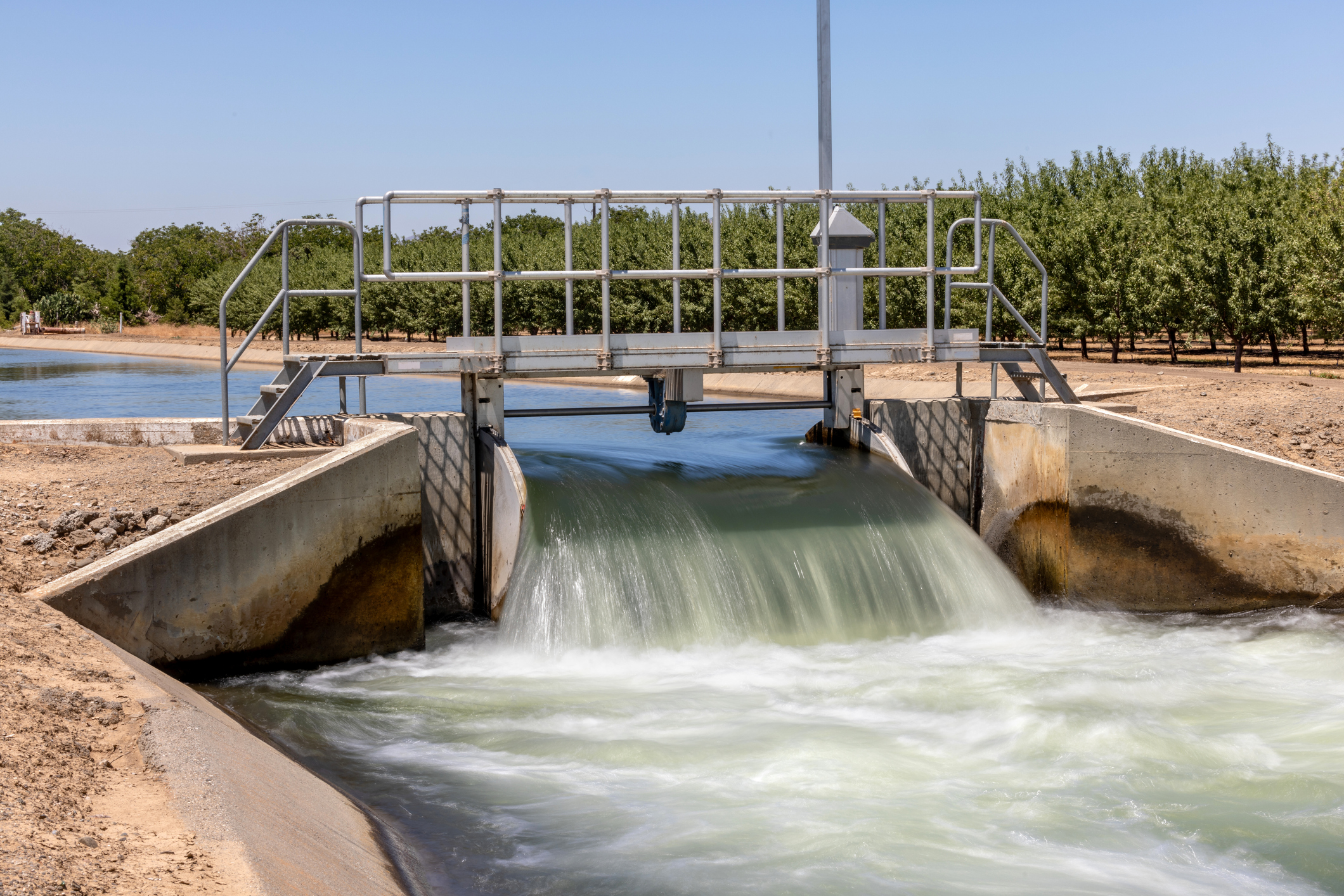
EPA Publishes Effluent Guidelines Program Plan 15
February 14, 2023
The EPA announced updated effluent limitations guidelines under Plan 15, focusing on the evaluation and rulemaking process for per- and polyfluoroalkyl substances (PFAS) discharges.
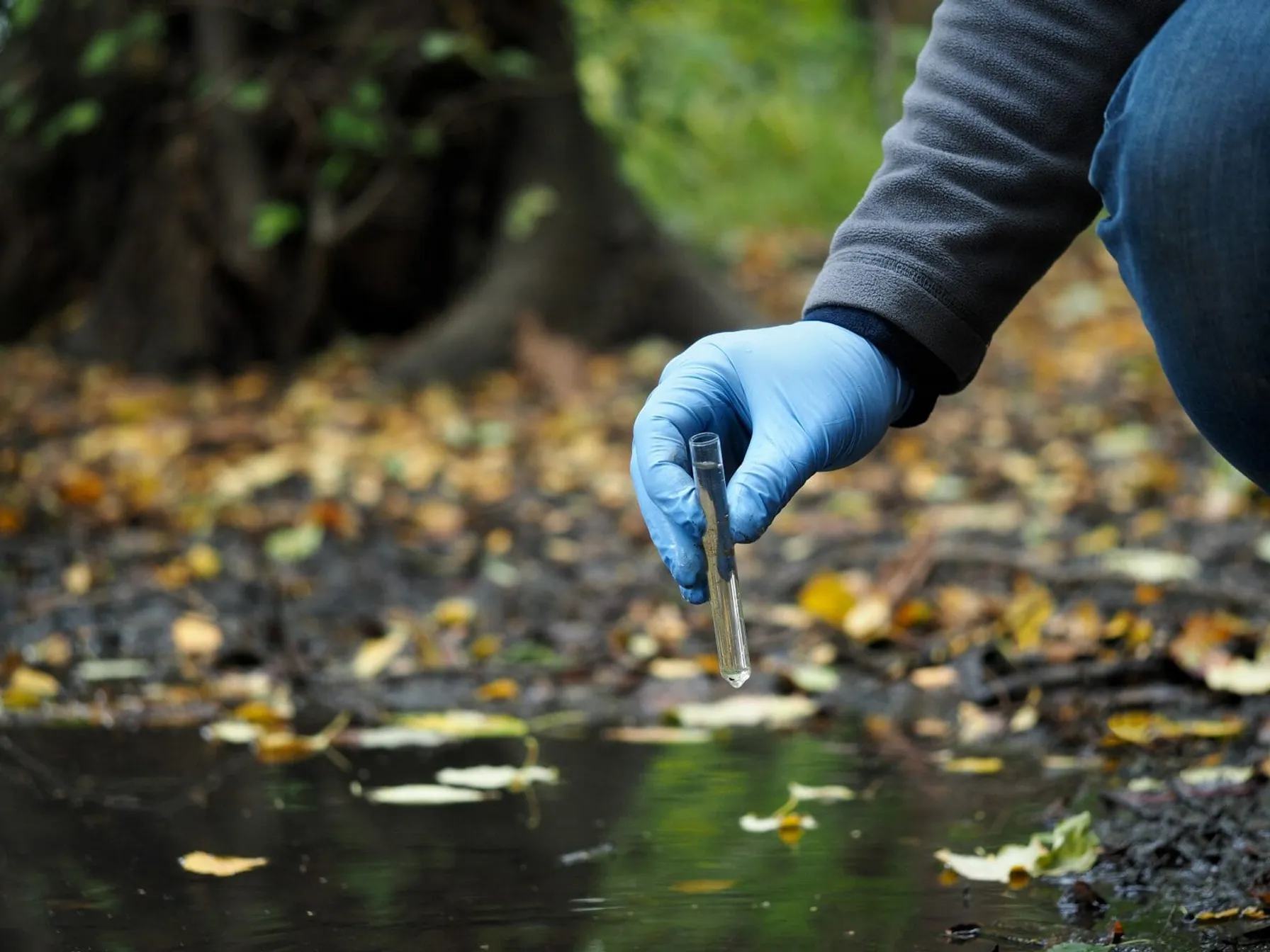
PFAS: Remedial Approaches
February 8, 2023
Remediating Per- and poly-fluoroalkyl substances (PFAS) from the soil and water requires effective techniques and innovative technologies. TRC’s experts are well versed in several remediation strategies intended to remove PFAS and prevent re-exposure.

TRI PFAS Reporting Requirements Continue to Expand
January 25, 2023
The list of PFAS for TRI reporting has increased to a total of 189 for reporting year 2023.
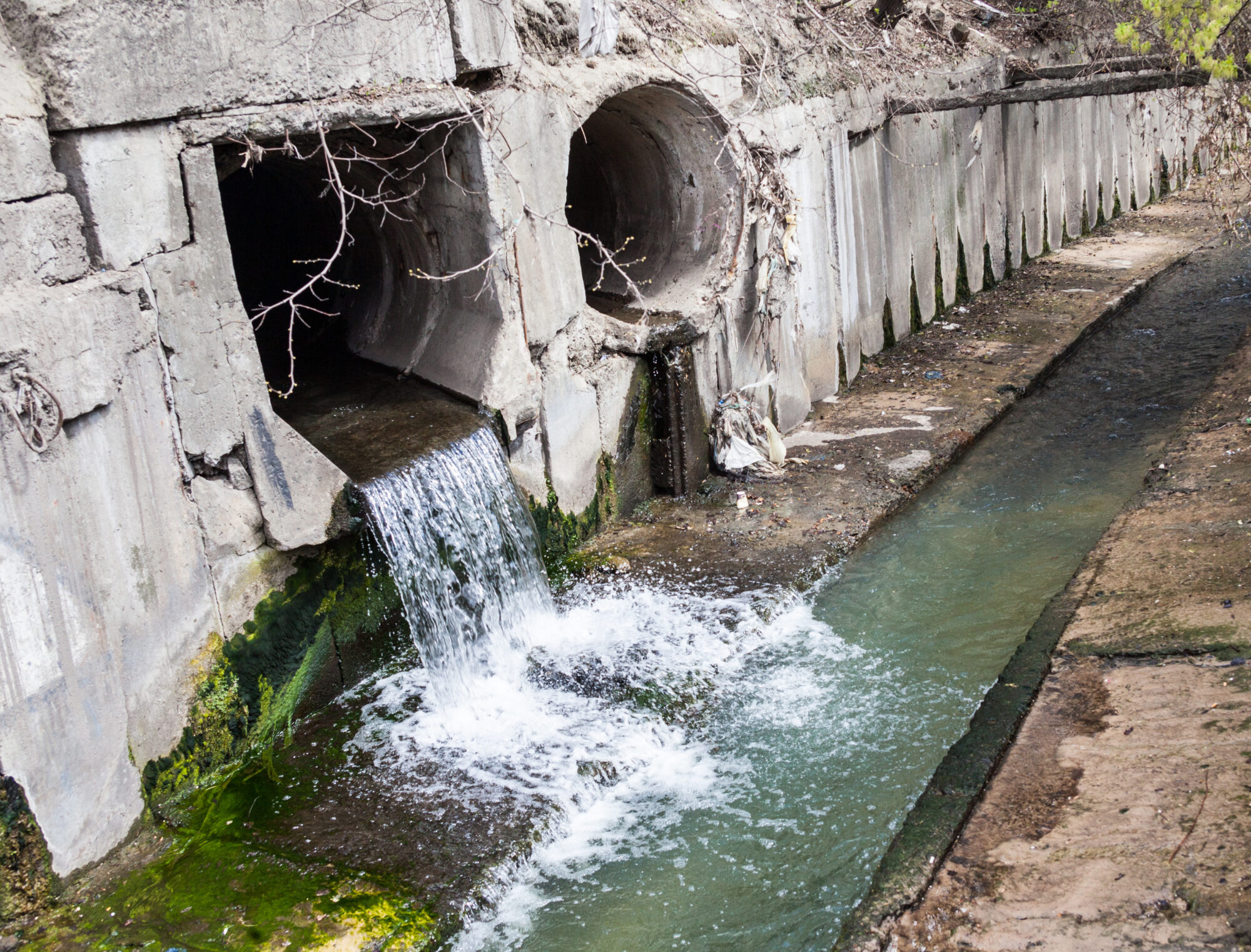
PFAS Discharges in NPDES Permits
December 19, 2022
In a follow-up to the EPA Office of Water’s April 28, 2022 memo, EPA released “Part 2″, providing guidance for the NPDES permitting/pretreatment program as it relates to restricting discharges of PFAS to water bodies.

Washington State Establishes PFAS Cleanup Levels
September 21, 2022
The Washington State Department of Ecology (Ecology) recently published a list of 6 PFAS compounds that now have soil and groundwater cleanup levels
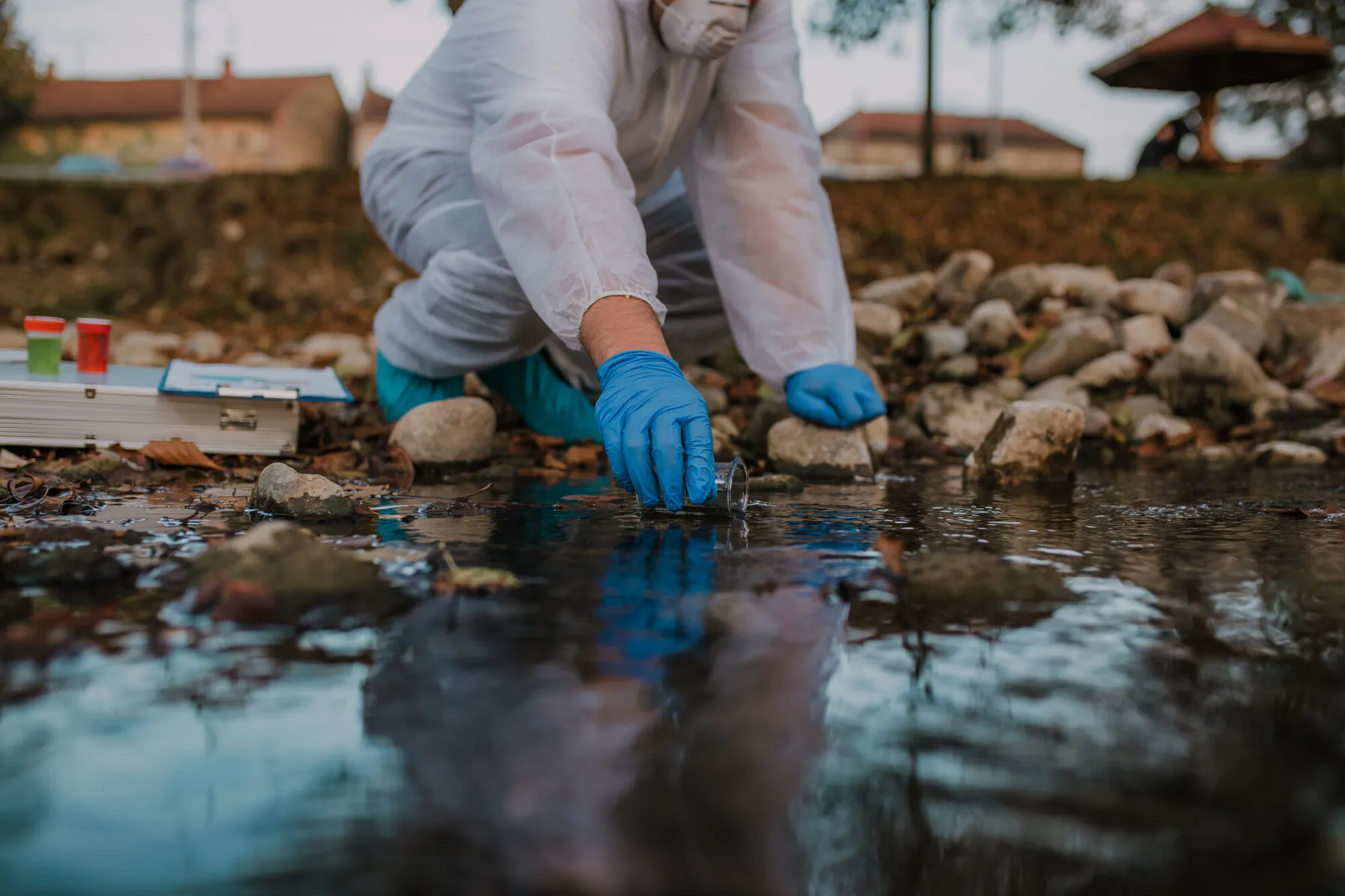
New National Emerging Contaminants Research Initiative
September 12, 2022
The Executive Office of the President of the United States announced a National Emerging Contaminant Research Initiative

EPA Issues Proposed Rule Designating PFOA and PFOS as Hazardous Substances
September 7, 2022
The EPA has issued a pre-publication version of a proposed rule to designate two PFAS compounds as hazardous substances under CERCLA.

Five New PFAS Added to EPA Regional Screening Levels (RSLs)
June 24, 2022
EPA announced the addition of five new PFAS to the list of Regional Screening Levels (RSLs)

EPA Announces Updated Drinking Water Health Advisories for Four PFAS Chemicals: PFOS, PFOA, PFBS, & GenX
June 24, 2022
On June 15, 2022, the EPA released updated Health Advisory Levels for four per- and polyfluoroalkyl substances (PFAS) in drinking water

Integrating Sustainability, Digital Connectivity and Design Optimization in Wastewater Treatment Systems
June 20, 2022
Some organizations rarely think about water and wastewater treatment, until there is a problem. American industry depends on the ability to treat wastewater discharges while complying with regulatory standards and addressing emerging contaminants. If wastewater treatment fails, our environment is negatively impacted, and companies are exposed to shutdowns, delays and fines.

Worst Case Discharges of Hazardous Substances – Proposed Rule
May 25, 2022
In compliance with the Clean Water Act (CWA), the U.S. Environmental Protection Agency (EPA) recently proposed a new rule for onshore non-transportation-related facilities requiring specified facilities to plan for worst case discharges (WCDs) of CWA hazardous substances that could cause substantial harm to the environment.
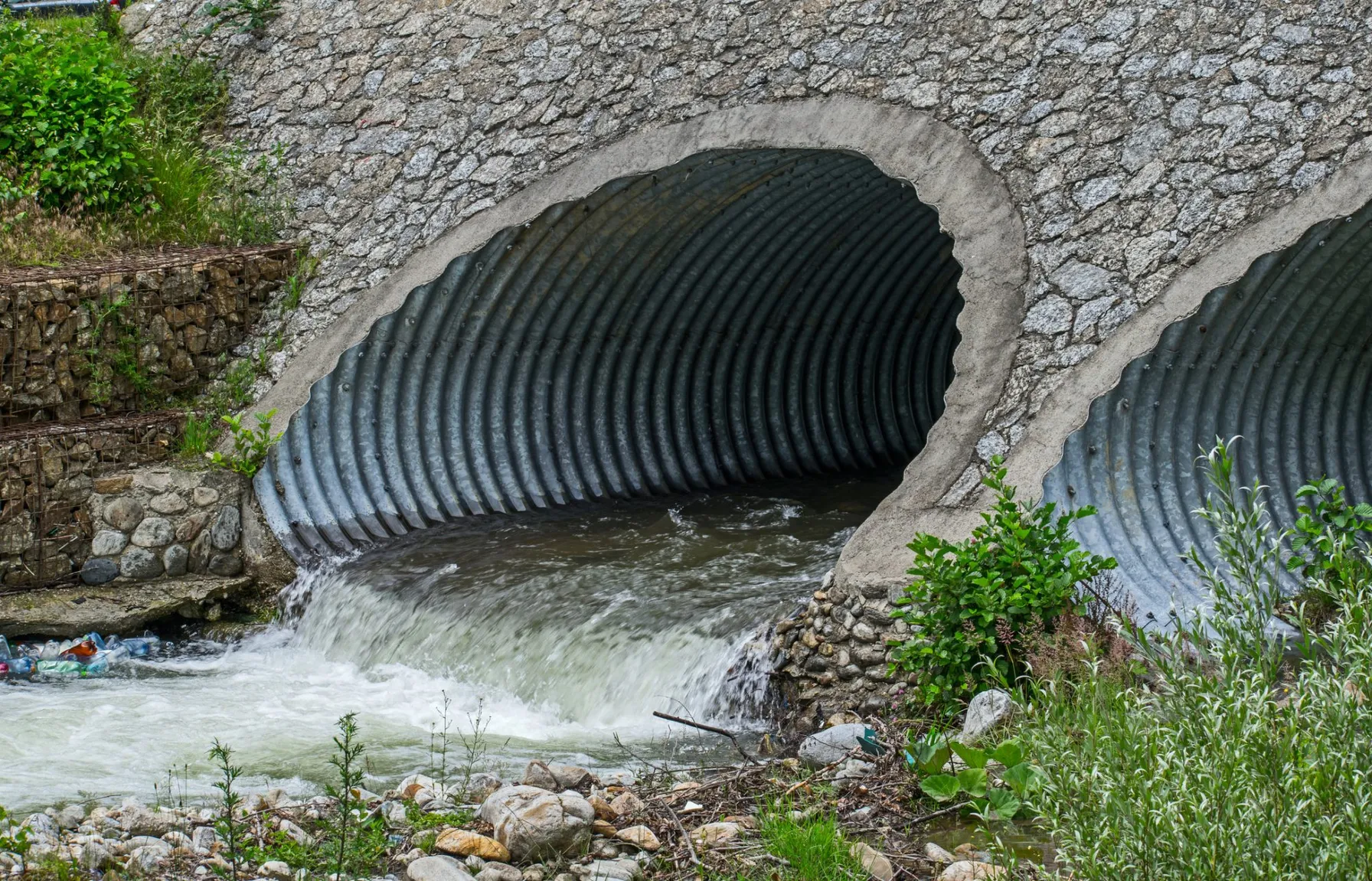
PFAS Discharges and NPDES Permits
May 25, 2022
On April 28, 2022, the U.S. Environmental Protection Agency’s (EPA) Office of Water released a memo addressing the use of National Pollutant Discharge Elimination System (NPDES) permits to restrict per- and poly-fluoroalkyl substances (PFAS) discharges to water bodies.

EPA Proposes Aquatic Life Criteria for PFOA and PFOS
May 25, 2022
On May 3, 2022, under the Clean Water Act (CWA), the United States Environmental Protection Agency (USEPA) proposed the first aquatic life criteria for both short-term and long-term toxic effects from Perfluorooctanoic Acid (PFOA) and Perfluorooctane Sulfonic Acid (PFOS).

SEC Releases New Proposed Rules Requiring Public Companies to Disclose Climate Risks
April 12, 2022
On March 21, 2022, the U.S. Securities and Exchange Commission (SEC) issued its proposed rules for The Enhancement and Standardization of Climate-Related Disclosures for Investors which would require public companies in the U.S. to disclose information in their annual financial reports.

PFOA & PFOS As CERCLA Hazardous Substances: What Does This Mean and How Can You Be Prepared?
February 17, 2022
A plan to designate two per- and polyfluoroalkyl substances (PFAS) as “hazardous substances” under CERCLA was recently submitted by the EPA.

New Phase I ESA Standard Will Affect Environmental Due Diligence
January 25, 2022
After years of review, revisions and discussions, the new ASTM E1527 Phase I Environmental Site Assessment (Phase I ESA) standard has been published. The new standard includes updates to definitions, clarifications on processes and requirements, and guidance for emerging contaminants.

Fifth Unregulated Contaminant Monitoring Rule Lists 29 PFAS
January 21, 2022
EPA published fifth Unregulated Contaminant Monitoring Rule as required every five years and 29 of the 30 contaminants listed are PFAS.

Need help collecting PFAS samples for NJDEP deadline December 15?
October 7, 2021
NJDES Category B or L Industrial Permit holders – If you haven’t obtained your first PFAS sample yet, time is running out. All New Jersey Pollutant Discharge Elimination System (NJDES) Category B or L Industrial Permit holders are required by the New Jersey Department of Environmental Projection (NJDEP) to collect two representative effluent samples, taken 30 days apart, to be analyzed for PFAS by an approved laboratory and submitted to them by December 15, 2021.

Interpretation of “Waters of the United States” (WOTUS) Reverts to Pre-2015 Regulatory Definition
September 29, 2021
Environmental Protection Agency (EPA) and U.S. Army Corps of Engineers (ACOE) revert to pre-2015 regulatory program definition of “Waters of the United States.”
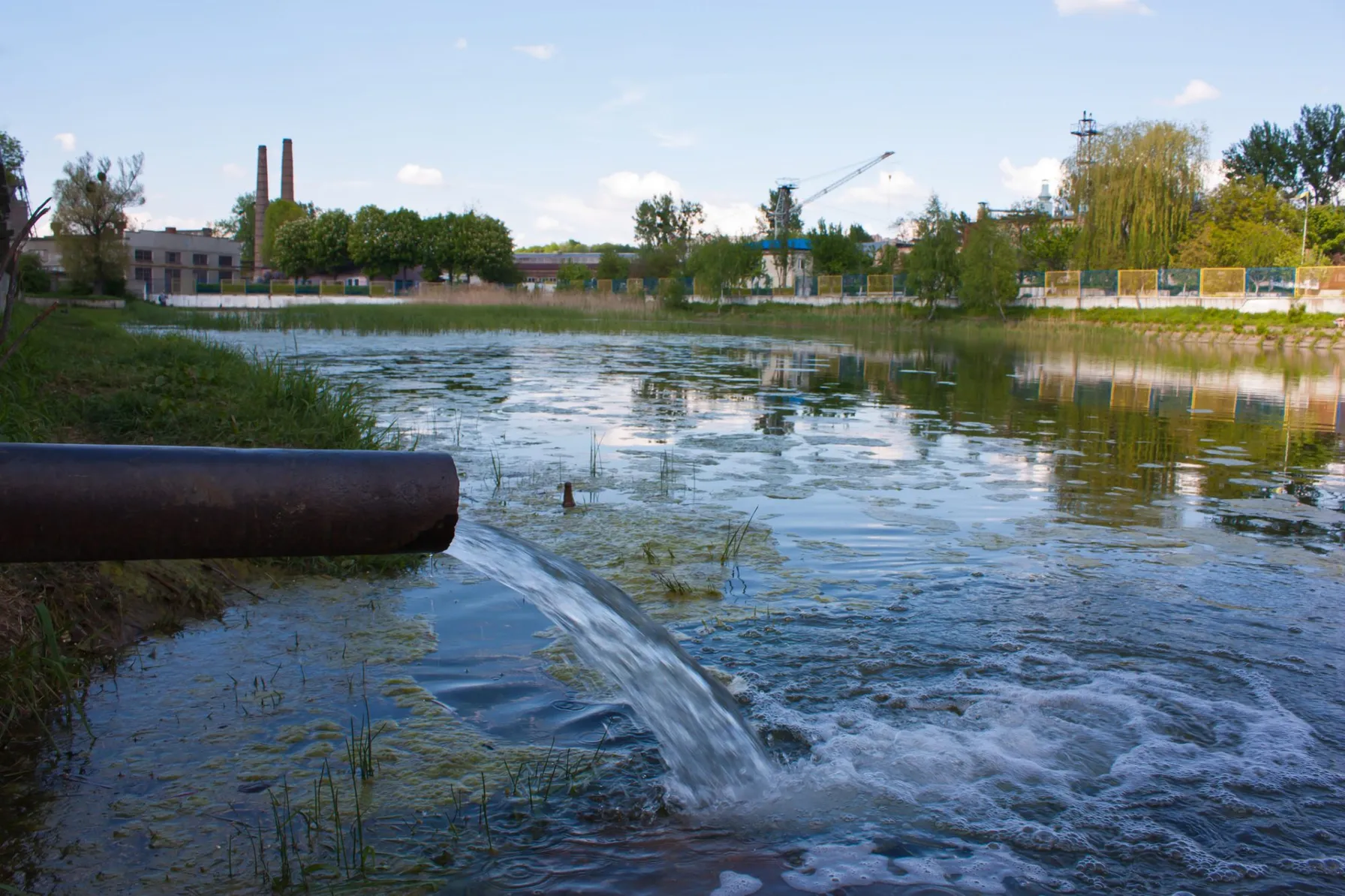
EPA Solicits Comments on PFAS Discharges in Five Point Source Categories
September 23, 2021
EPA solicits comments in five point source categories (PSCs) in the manufacture, use, treatment and discharge of PFAS.

PFAS Air Emissions Standards and Trends for Summer 2021
August 17, 2021
Environmental impacts of PFAS in ambient air leads to states implementing PFAS air-related thresholds.

Cryptocurrency: The Environmental Threats and Opportunities
August 9, 2021
Cryptocurrency (also known as crypto) is taking the fintech industry by storm, despite the economic experts who still dismiss it as a viable form of currency. Although often criticized for this volatility, whistleblowers are also further shining a light on the severe toll that these digital currencies are taking on the environment.

TRC Colorado PFAS Regulatory Update
July 21, 2021
Update on Colorado’s recent policies and plans to regulate new and historical discharges of per- and polyfluoroalkyl substances (PFAS) into the environment.

2021 EPA TRI Reporting Requirements for Natural Gas Processing Facilities
July 12, 2021
Indication EPA finalizing a rule to add natural gas extraction or processing plants to EPCRA Toxics Release Inventory (TRI) reporting.

Implementing bioremediation at environmental cleanup sites: TRC experts weigh in at leading industry conference
May 17, 2021
TRC experts make several presentations at the Battelle conference about innovative approaches they have developed for implementing and monitoring bioremediation and the use of naturally-occurring or deliberately-introduced micro-organisms to break down environmental pollutants.

Interim Guidance on Destruction and Disposal of PFAS & Materials Containing PFAS
February 19, 2021
Interim Guidance from EPA identifies 6 materials that use or manufacture PFAS and approaches for disposal.
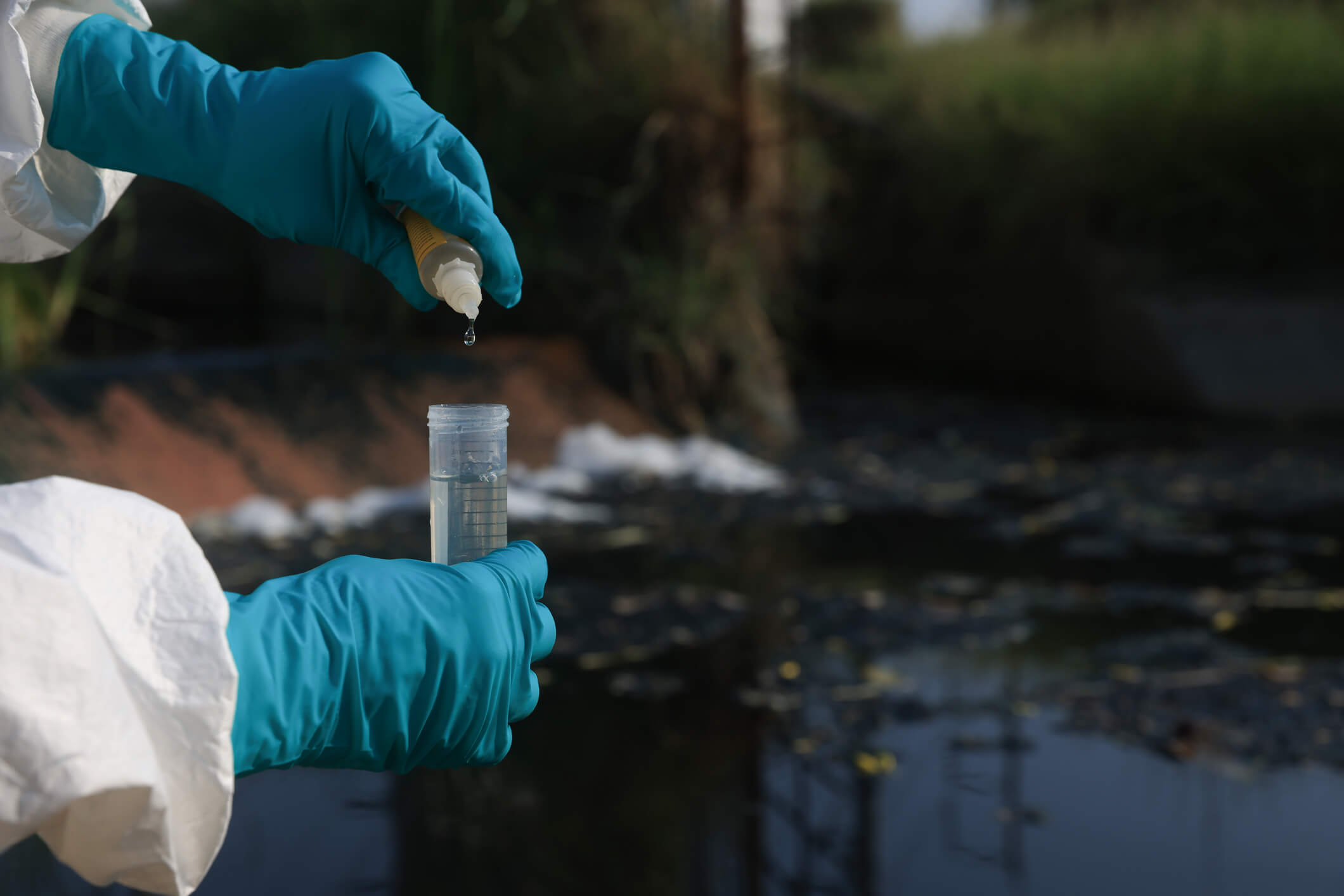
EPA continues to aggressively address PFAS wastewater with two new strategies
January 4, 2021
EPA takes steps toward PFAS wastewater and storm water permitting, and analytical methods for testing.

TRC Companies Inc. Acquires 1Source Safety and Health
November 11, 2020
TRC Companies (“TRC”), a leading technology-driven provider of end-to-end engineering, consulting and construction management solutions, has acquired 1Source Safety and Health, a firm that provides management consulting services in areas such as indoor air quality, asbestos management, industrial hygiene and safety management systems.

Ecological Risk of PFAS from AFFF-Impacted Sites
June 30, 2020
The facts on evaluating exposure to wildlife

TRC’s Reporting Tool Can Help Identify New PFAS under the TRI
May 19, 2020
While utilities often work in technical silos, NERC auditors are trained to cross check compliance evidence and data between interrelated standards.

Microplastics: Adapting to Emerging Legal Challenges with Proper Risk Assessment
April 15, 2025
Although microplastics may very well be fundamentally inert and no different from nuisance dusts, concern over their increasing presence in the environment and the human body persists. To ensure that regulators, the public and juries reach accurate decisions about the potency of microplastics, it is important to conduct an exhaustive health risk assessment evaluating a diversity of toxicological endpoints across differing doses.

Changes to EPA’s Risk Management Program (RMP) Regulations Are Coming
April 14, 2023
Changes to the Risk Management Program (RMP) regulations were signed into a final rule on February 27, 2024, by EPA Administrator Michael S. Regan.

Deadline Approaching for Utilities to Report SF₆ Emissions to EPA
March 8, 2023
The EPA regulates greenhouse gas (GHG) emissions under the Greenhouse Gas Reporting Program (GHGRP) and has recently decided to place renewed emphasis on sulfur hexafluoride (SF₆).

Routinely Evaluating the Health & Effectiveness of Integrated Systems to Manage EHS/ESG Risks – Part I
March 1, 2023
Once established, an EHS/ESG management system must be routinely evaluated to ensure it remains effective to identify and control risks, as well as accommodate and adjust for changes that occur to/within the organization.

Phase I ESA ASTM Standard Update: The Wait is Over
December 21, 2022
The USEPA published a Final Rule making the ASTM E1527-21 Phase I ESA standard AAI compliant.

Optimizing EHS/ESG Information Management and Reporting Systems by Leveraging Innovative Digital Technology Solutions
August 10, 2022
A single, integrated enterprise wide EHS/ESG IMS can significantly improve performance and communicate progress towards organizational requirements and goals.

Support an Integrated EHS/ESG Management System
June 10, 2022
Highlights PFAS additions are required for TRI reporting effective January 1, 2020. Reporting forms for these chemicals will be due to EPA by July 1, 2021, for calendar year 2020 data. The TRI reporting threshold is 100 pounds for PFAS, if manufactured, processed, or otherwise used. The PFAS Act of 2019 provides for the automatic addition of more PFAS chemicals to the TRI list, if EPA finalizes a toxicity value for the new compound. Any additional PFAS compounds added to the list will become subject to TRI reporting during the following year. During the waning days of 2019, the “PFAS Act of 2019” (contained in Section 7321 of the National Defense Authorization Act [NDAA]), was signed into law by President Trump. Our new TRI PFAS Tool utilizes CAS number and nomenclature search to identify possible PFAS usage and potential reporting requirements now required under TRI. The statutory provisions of the PFAS Act trigger reporting of a significant number of per- and polyfluoroalkyl substances (PFAS) for the Toxics Release Inventory (TRI) under Section 313 of the Emergency Planning and Community Right-to-Know Act (EPCRA). The U.S. Environmental Protection Agency (EPA) subsequently published a list of 172 PFAS chemicals.

How to Use an Integrated Approach To Manage EHS and ESG Risks
April 20, 2022
Highlights PFAS additions are required for TRI reporting effective January 1, 2020. Reporting forms for these chemicals will be due to EPA by July 1, 2021, for calendar year 2020 data. The TRI reporting threshold is 100 pounds for PFAS, if manufactured, processed, or otherwise used. The PFAS Act of 2019 provides for the automatic addition of more PFAS chemicals to the TRI list, if EPA finalizes a toxicity value for the new compound. Any additional PFAS compounds added to the list will become subject to TRI reporting during the following year. During the waning days of 2019, the “PFAS Act of 2019” (contained in Section 7321 of the National Defense Authorization Act [NDAA]), was signed into law by President Trump. Our new TRI PFAS Tool utilizes CAS number and nomenclature search to identify possible PFAS usage and potential reporting requirements now required under TRI. The statutory provisions of the PFAS Act trigger reporting of a significant number of per- and polyfluoroalkyl substances (PFAS) for the Toxics Release Inventory (TRI) under Section 313 of the Emergency Planning and Community Right-to-Know Act (EPCRA). The U.S. Environmental Protection Agency (EPA) subsequently published a list of 172 PFAS chemicals.

New Phase I ESA Standard Will Affect Environmental Due Diligence
January 25, 2022
After years of review, revisions and discussions, the new ASTM E1527 Phase I Environmental Site Assessment (Phase I ESA) standard has been published. The new standard includes updates to definitions, clarifications on processes and requirements, and guidance for emerging contaminants.

Managing EHS & ESG Risks Through Integrated Systems Today and Beyond
July 22, 2021
It has been more than 50 years since the development and establishment of the federal Environmental Protection Agency (EPA) and the federal Occupational Safety & Health Administration (OSHA) which were formed to protect our environment and workplaces across the United States. Significant laws, policies and regulations followed to establish the “regulatory programs” that all applicable businesses and entities must address and meet to ensure these compliance-driven legislative programs would create a foundation to protect our society.

Environmental Impacts of Transitioning to Renewables
May 15, 2021
The transition to renewable energy sources will have notable environmental impacts as well as economic impacts. To understand the possible implications, you’ll need some background knowledge of the ways fossil fuels affect the environment.

Interim Guidance on Destruction and Disposal of PFAS & Materials Containing PFAS
February 19, 2021
Interim Guidance from EPA identifies 6 materials that use or manufacture PFAS and approaches for disposal.

TRC Companies Inc. Acquires 1Source Safety and Health
November 11, 2020
TRC Companies (“TRC”), a leading technology-driven provider of end-to-end engineering, consulting and construction management solutions, has acquired 1Source Safety and Health, a firm that provides management consulting services in areas such as indoor air quality, asbestos management, industrial hygiene and safety management systems.

Elizabeth Denly
Elizabeth Denly serves as TRC’s Vice President, PFAS Initiative Leader. She is also the Quality Assurance & Chemistry Director, responsible for the creation and implementation of the Quality Management Plan and standard operating procedures (SOPs) for field sampling and documentation protocols. Ms. Denly also leads Quality Coordinator networks, which are responsible for the development and communication of quality initiatives within the organization. She is a chemist with 29 years of consulting experience encompassing field and laboratory analyses and audits, QA/QC, data validation, and consulting for regulatory agencies. Ms. Denly is a leader in ITRC’s PFAS and TPH Risk Work Groups and in TRC’s Center of Research & Expertise (CORE) Emerging Contaminants Team and received the ITRC’s Industry Member of the Year Award in 2017. She is currently focusing on PFAS, specifically the nomenclature, chemistry, sampling procedures, QA/QC, and laboratory analytical methodologies, and has a significant role in educating clients, attorneys, and regulators about PFAS. As a senior QA specialist at TRC, Ms. Denly is responsible for providing QA/QC oversight in support of a variety of environmental investigations and remediation programs including risk-based soil cleanups, ambient air monitoring, and human health and ecological risk assessments. In this role, she has directed the preparation of QAPPs, coordination with the laboratory, selection of the appropriate analytical methodologies to achieve the desired remedial standards, oversight and performance of the data validation process, and determination of the usability of the data and achievement of data objectives. Ms. Denly has provided this oversight under different regulatory programs. Read more on Ms. Denly's bio page. Please contact her at edenly@trccompanies.com.

Nidal Rabah
Nidal Rabah, Ph.D., PE, LSRP is a Senior Vice President at TRC. He has a PHD in environmental engineering and more than 35 years of professional and academic experience with a focus on advanced characterization, innovative remedial technologies, modeling and remedy optimization. He has managed numerous remedial programs to address NAPL, petroleum and chlorinated hydrocarbons and emerging contaminants. He has served as an expert and managed international environmental planning and water resource development and management projects. He authored/co-authored over 30 technical and conference publications. Reach out to Nidal at NRabah@trccompanies.com.
Michael Eberle
Michael Eberle is a Technical Director within TRC in Philadelphia, Pennsylvania. Mr. Eberle is also a member of TRC’s Centers of Research & Expertise (CORE) for in‐situ remediation and treatment train optimization. Mr. Eberle has over 30 years of environmental consulting experience, including over 27 years of experience designing, troubleshooting, and managing the operation of multiphase hydrocarbon product extraction, bioventing, and in‐situ/ex-situ groundwater remediation systems. Additionally, Mr. Eberle is tasked with lending his chemistry background to understanding, characterizing, and tracking emerging chemicals under regulatory scrutiny.

Jim Occhialini
Jim_Occhialini is a Vice President with Alpha Analytical in Mansfield, Massachusetts and he serves as the Specialty Services Practice Leader for the laboratory’s emerging contaminants, sediments, and hydrocarbon forensics project applications. Jim has over 40 years of environmental analytical and consulting experience working on a wide range of projects. Jim is active with a number of regulatory work groups and industry associations where he has given numerous technical presentations and training programs.
Phil Bassignani
Philip Bassignani is the director of the Emerging Contaminants and Halogenated Persistent Organic Pollutants department with Alpha Analytical in Mansfield, Massachusetts. Mr. Bassignani has over 20 years of environmental analytical experience with a strong background in method development for high‐resolution mass spectroscopy and tandem quadrupole mass spectroscopy. He has worked with groups both domestically and internationally on method development and given a wide range of oral presentations on both sample preparation and analytical method development at various conferences.

